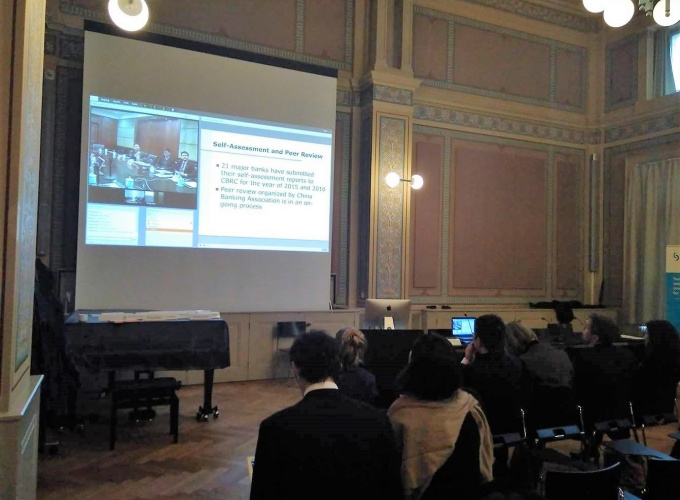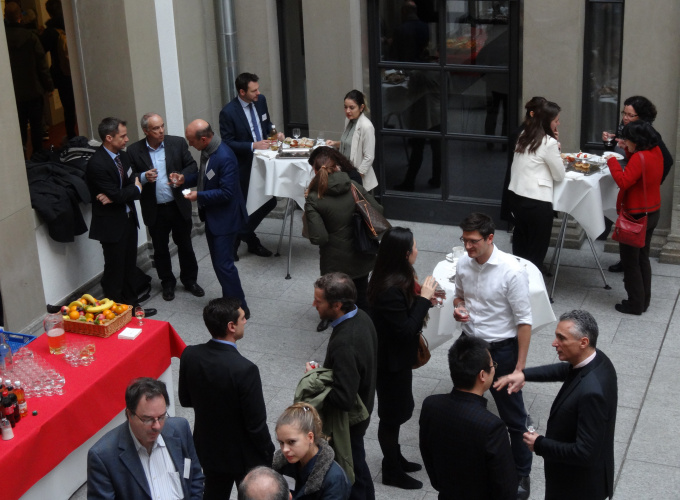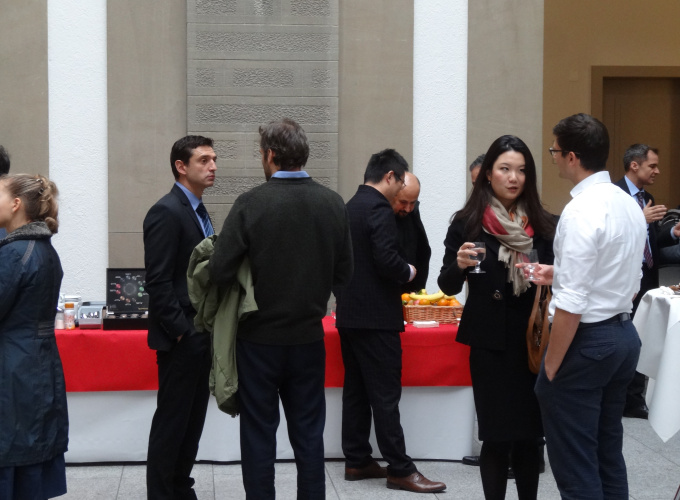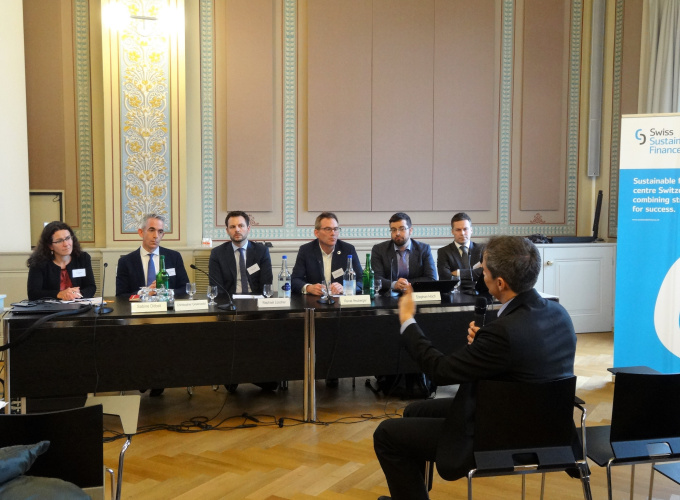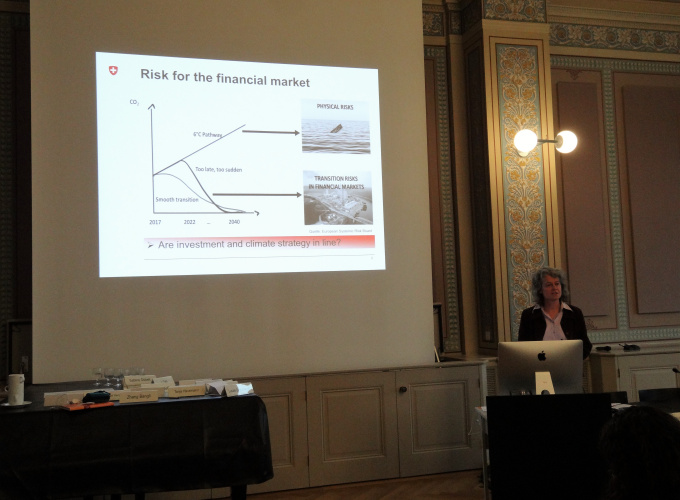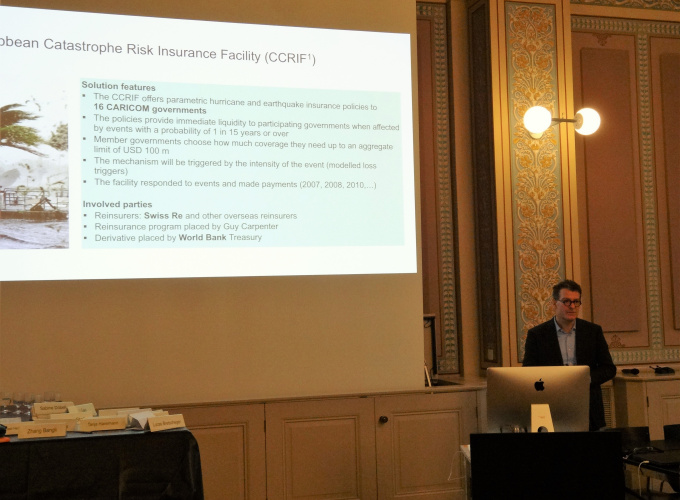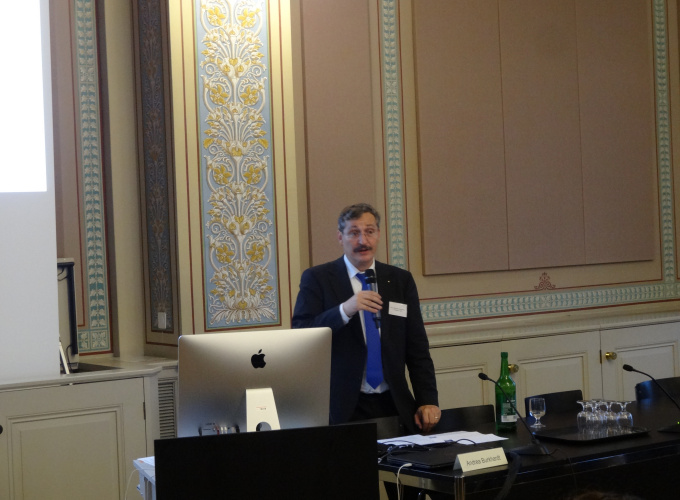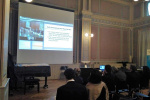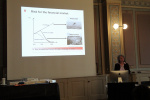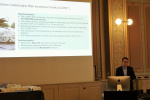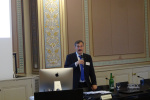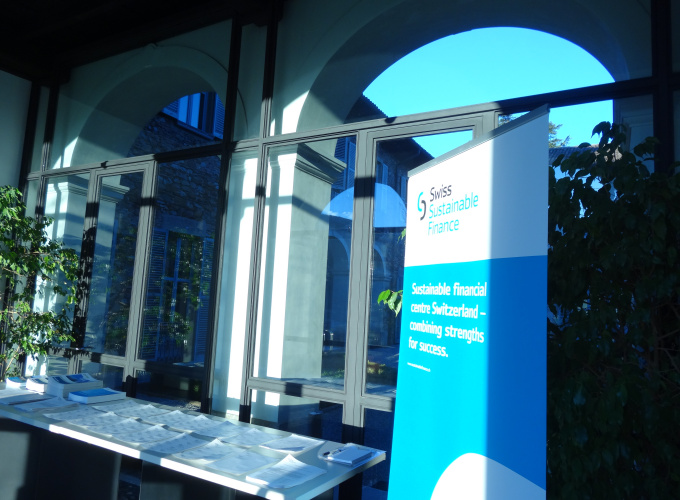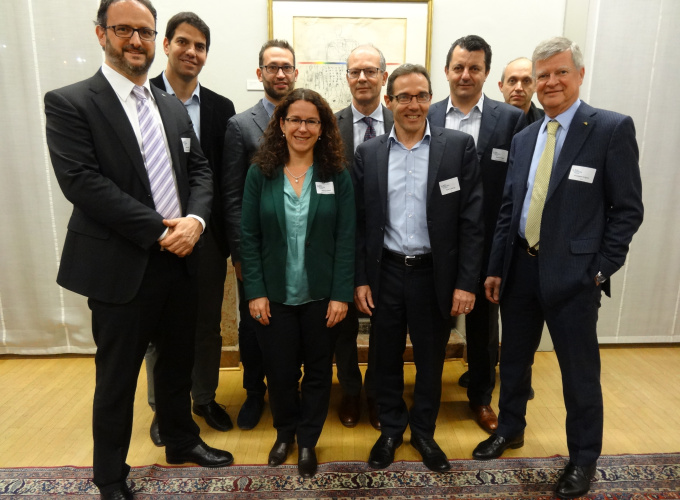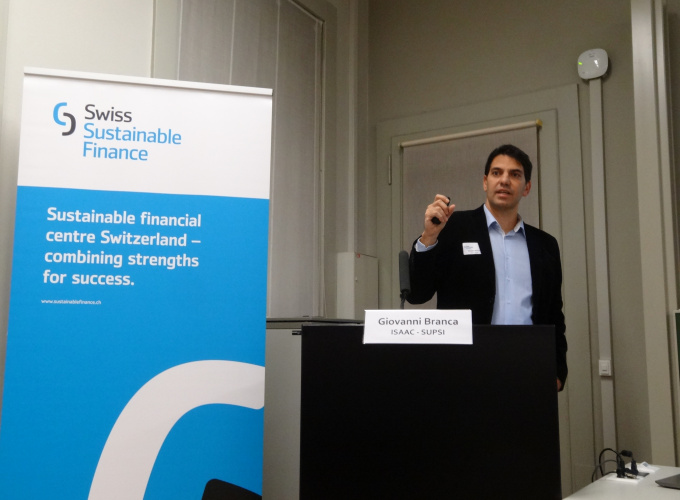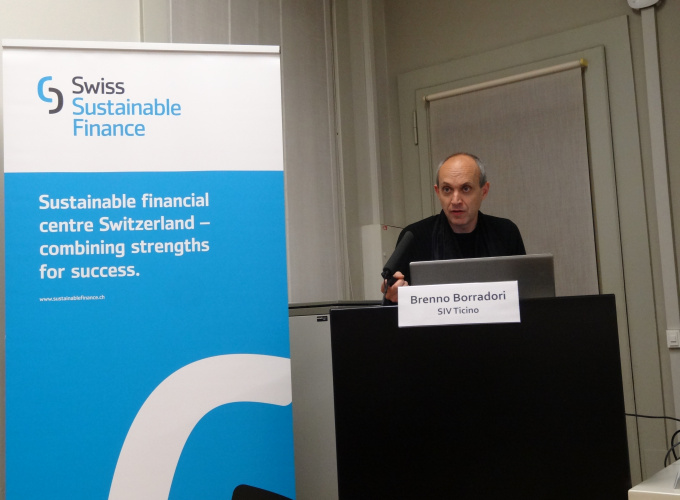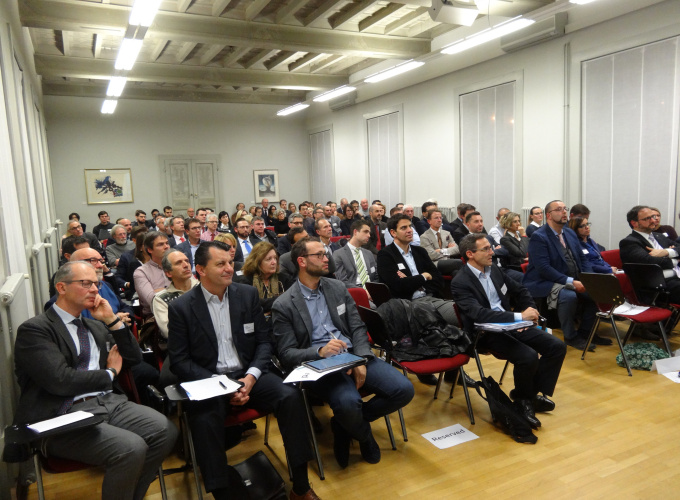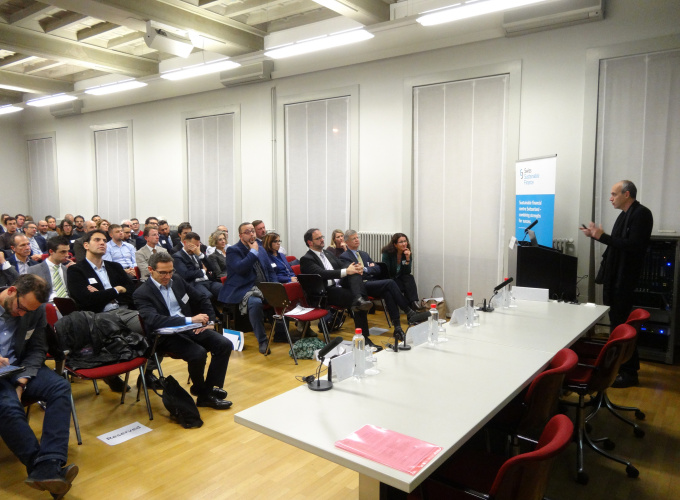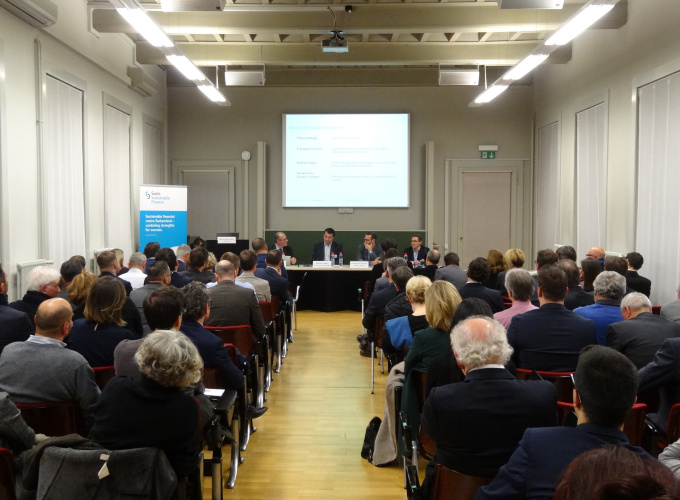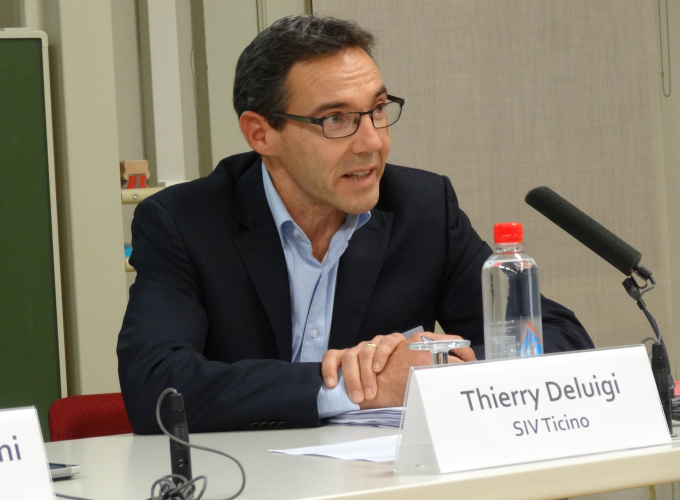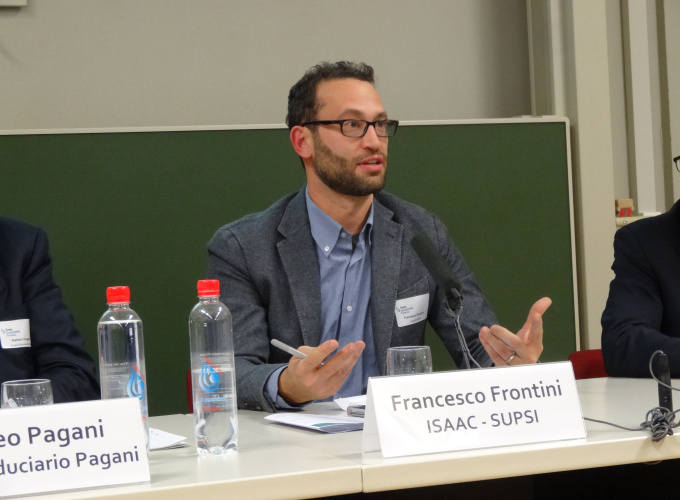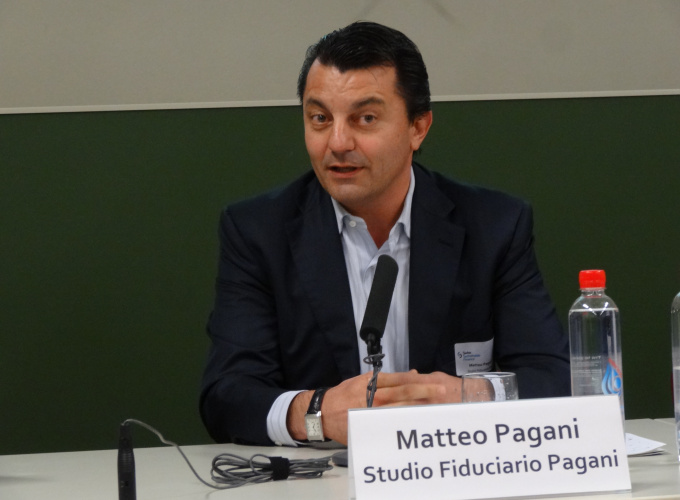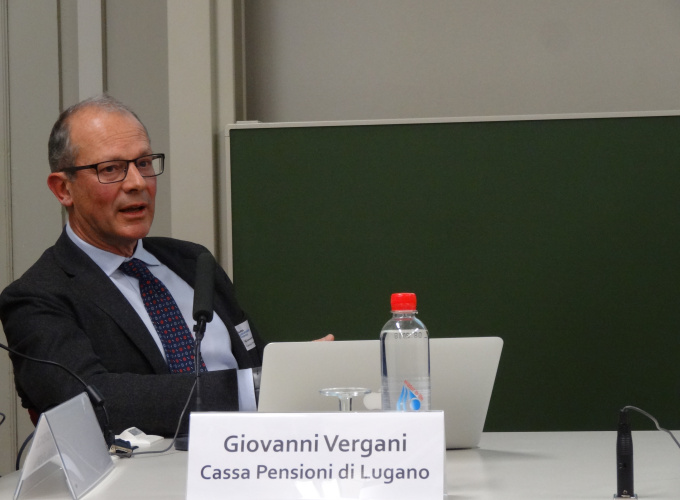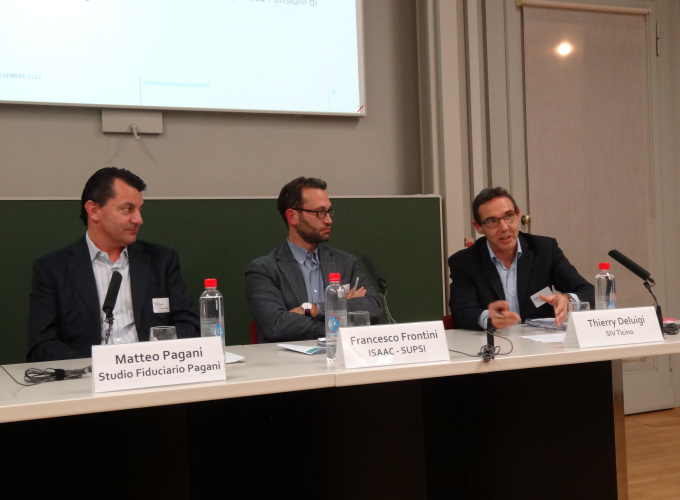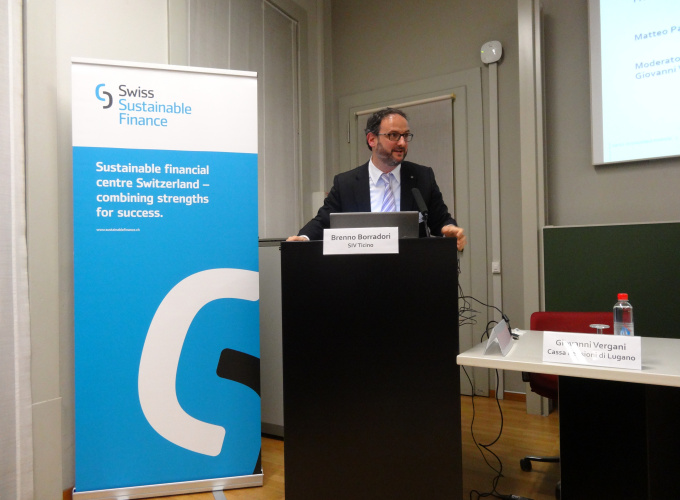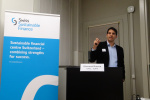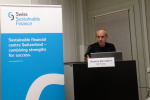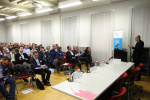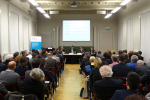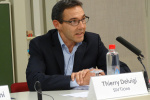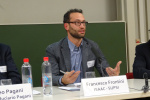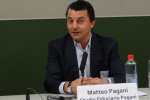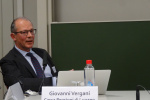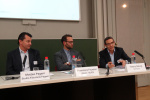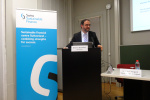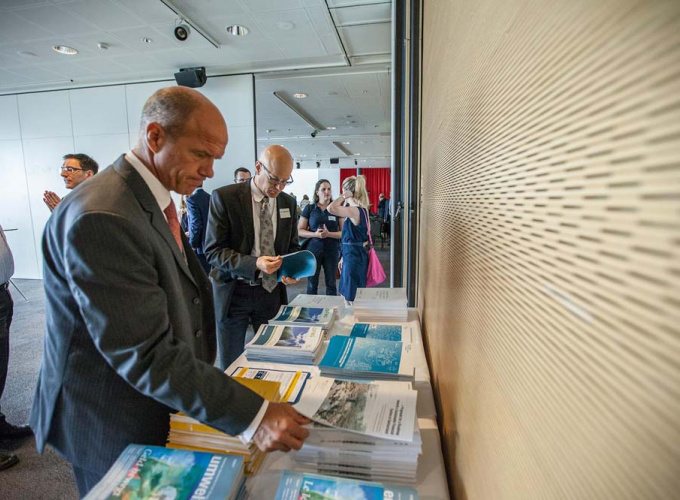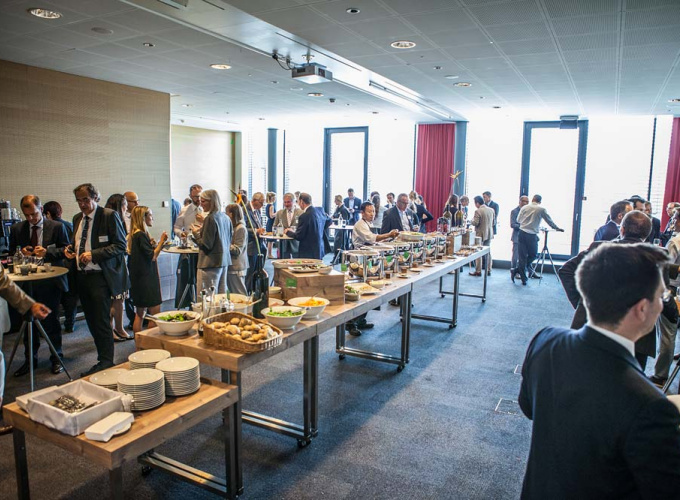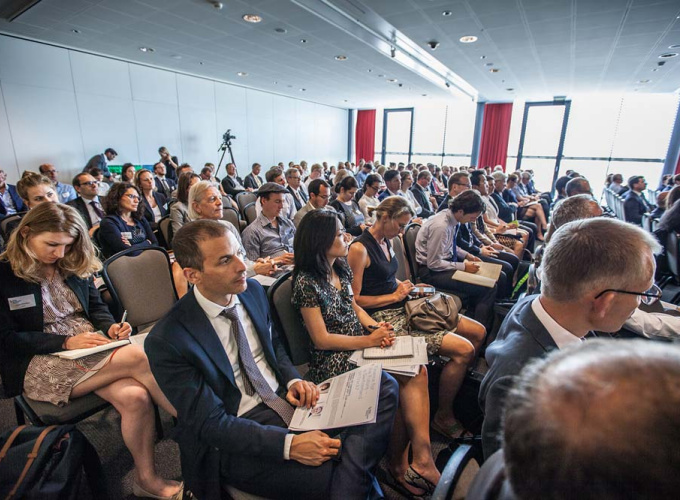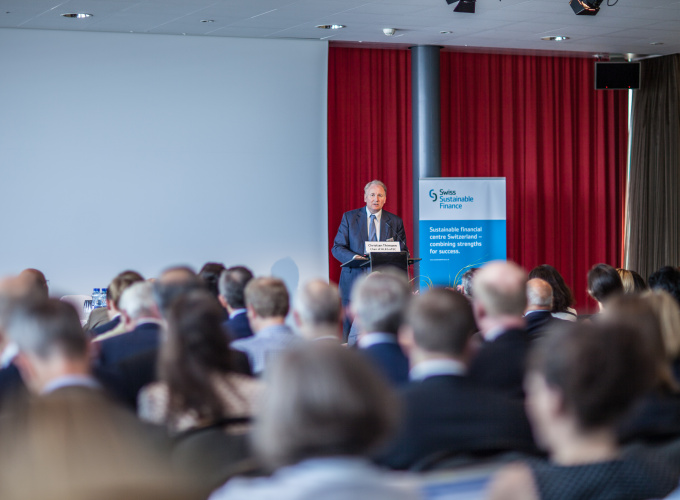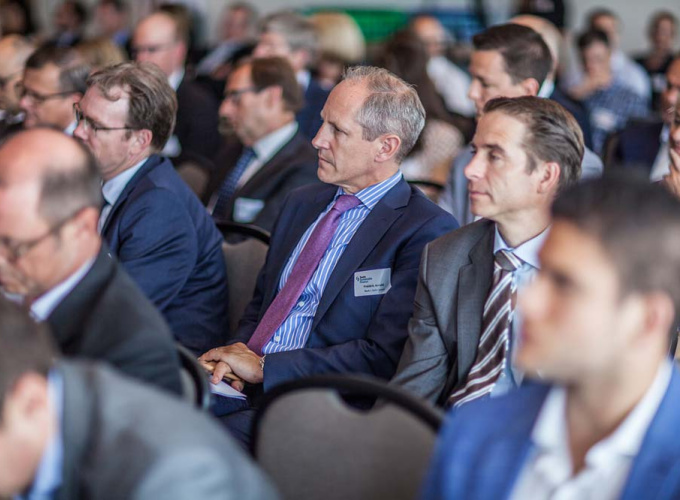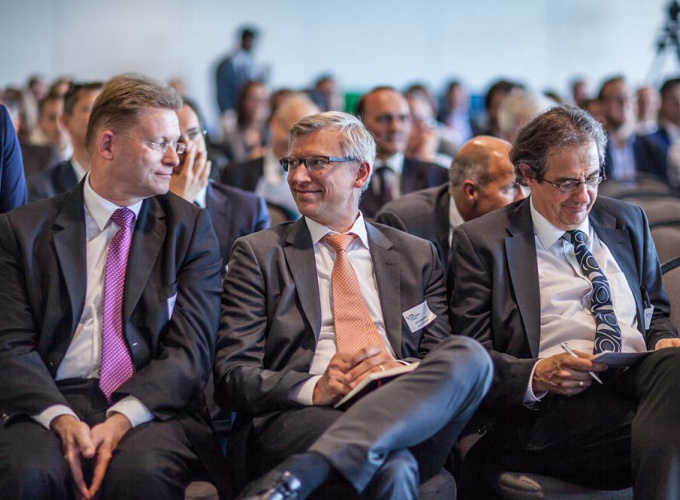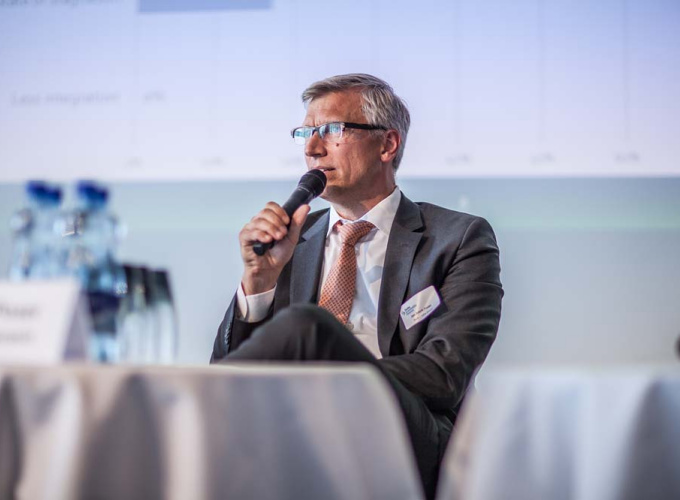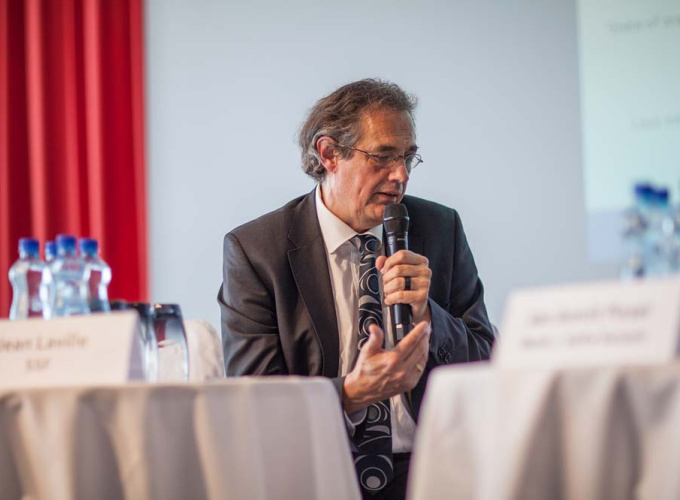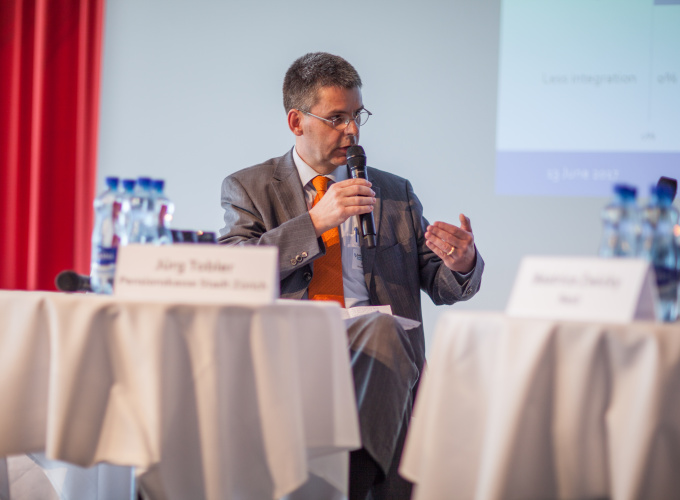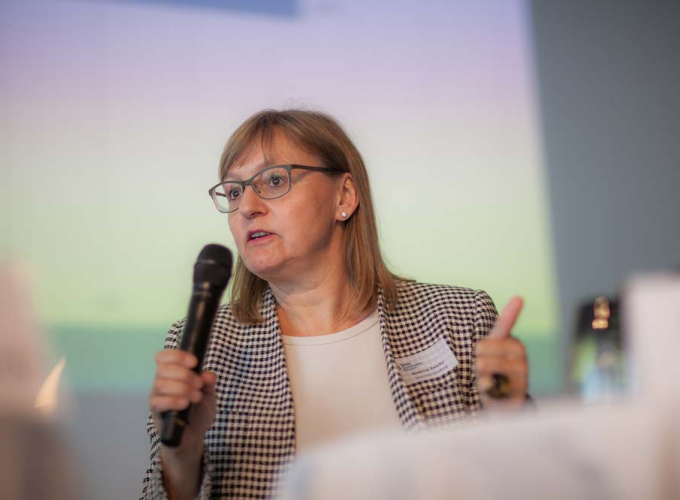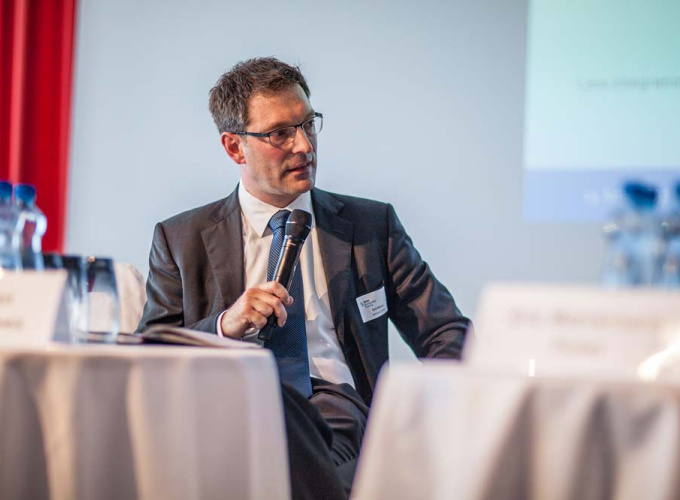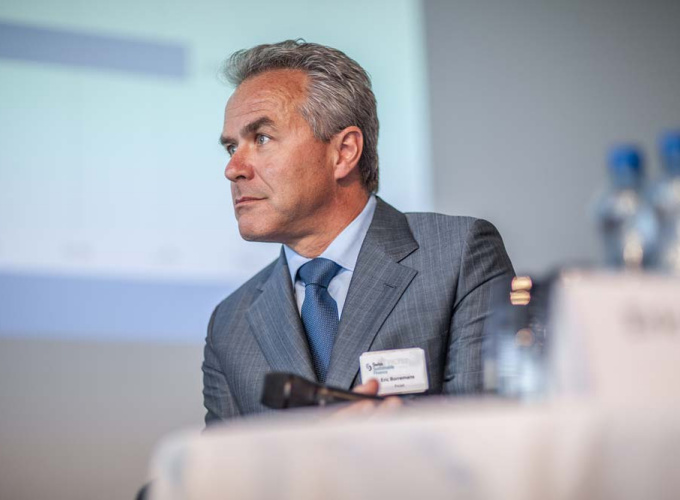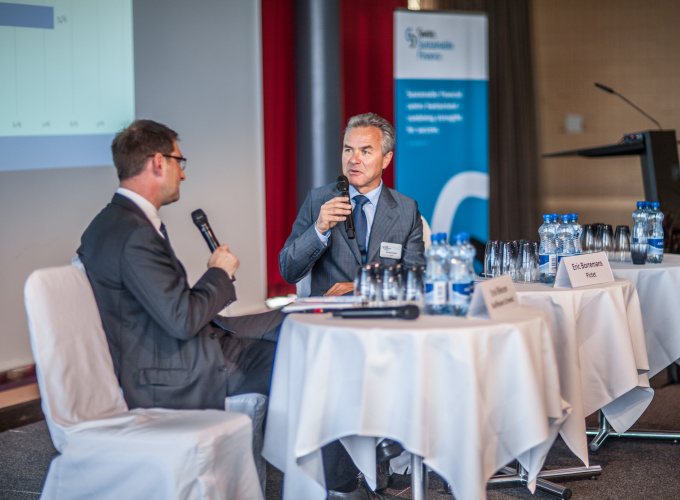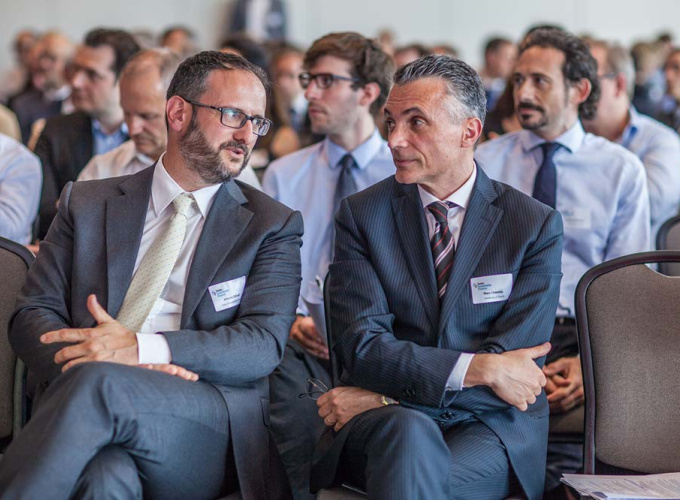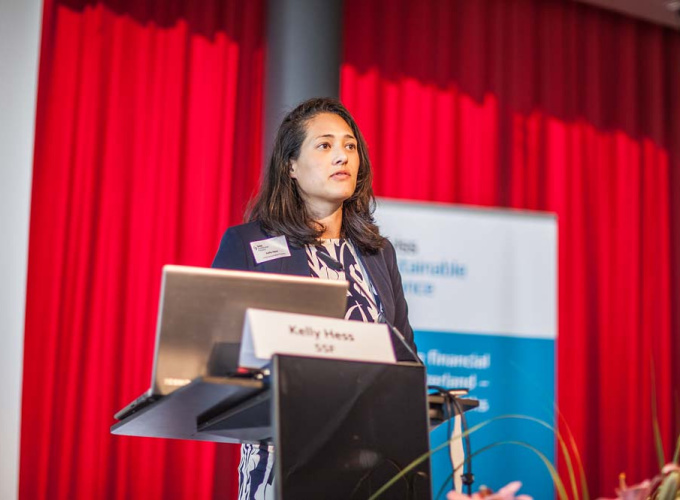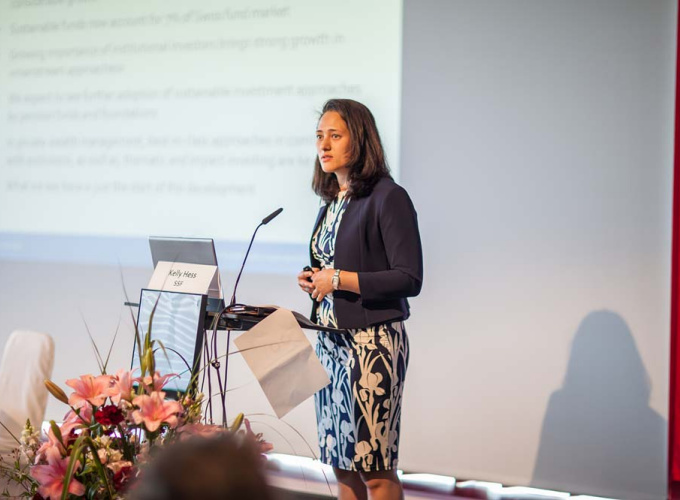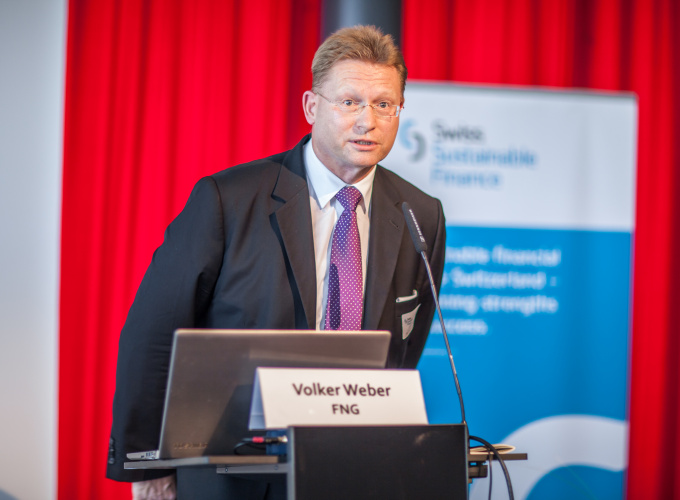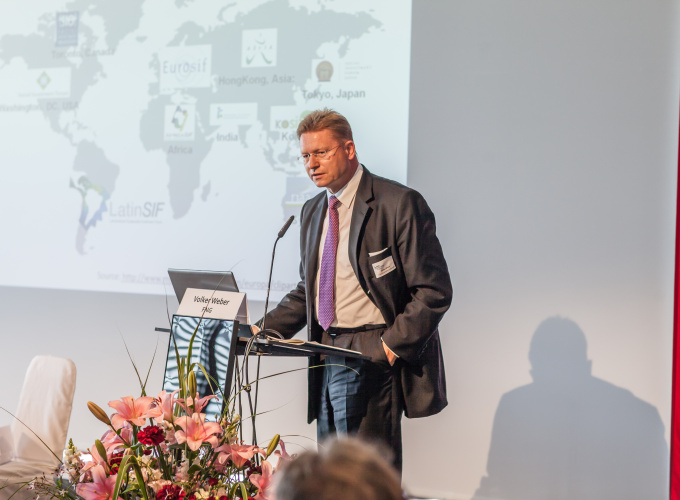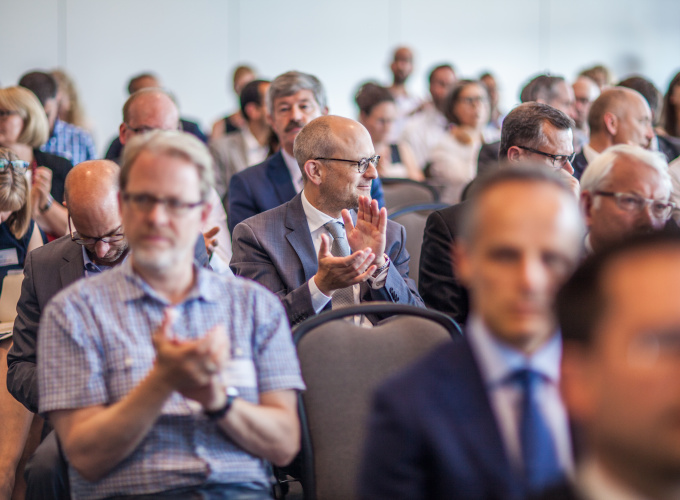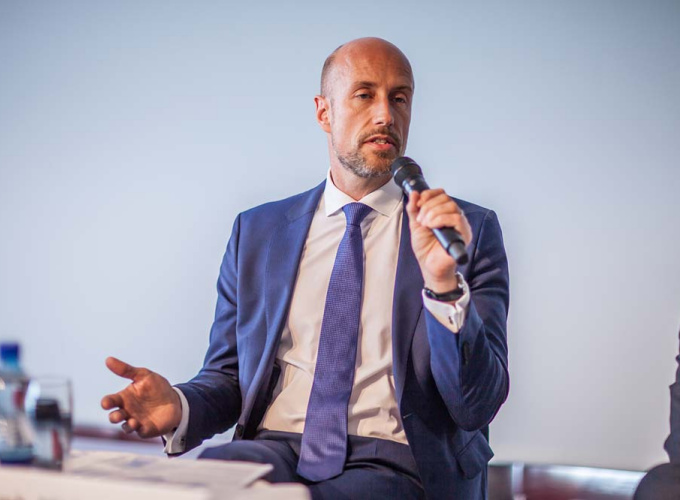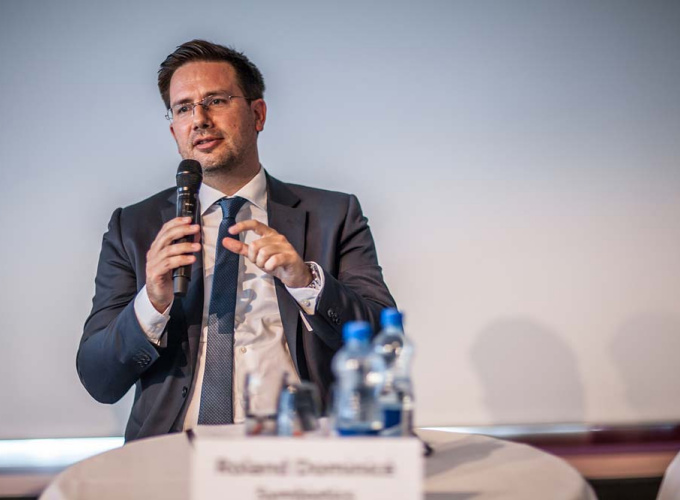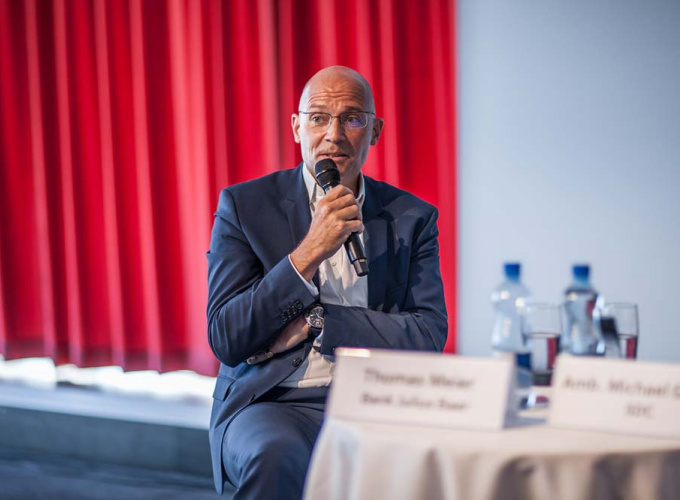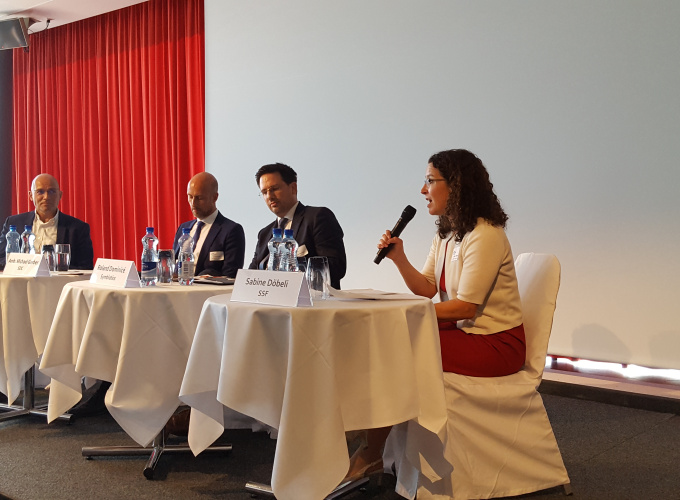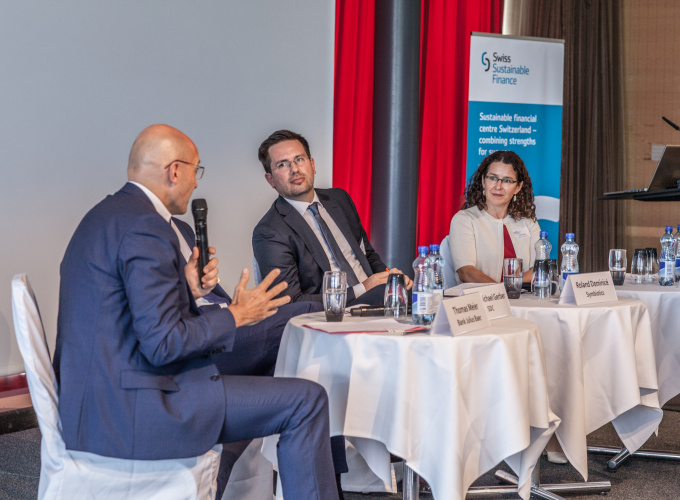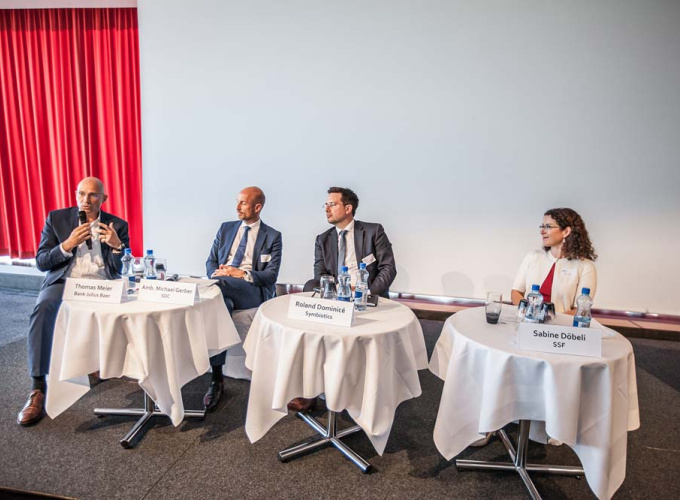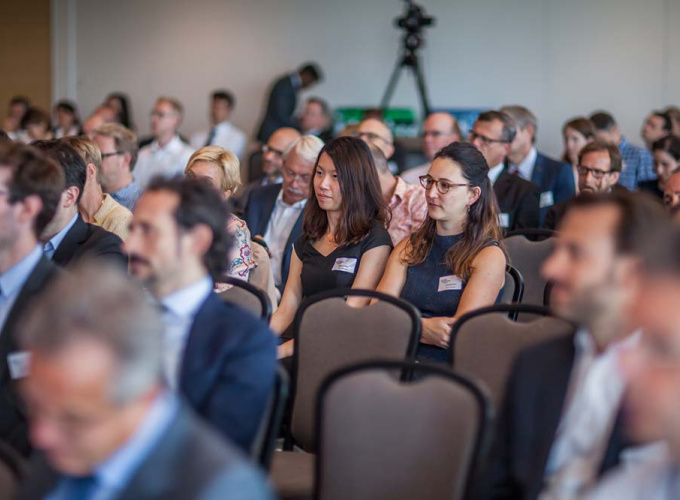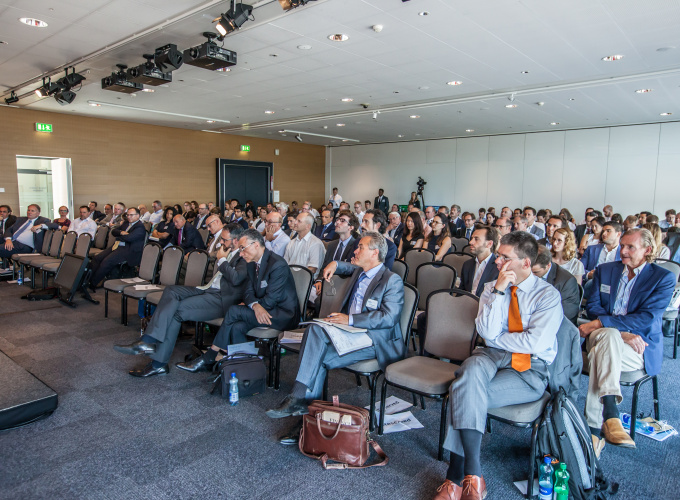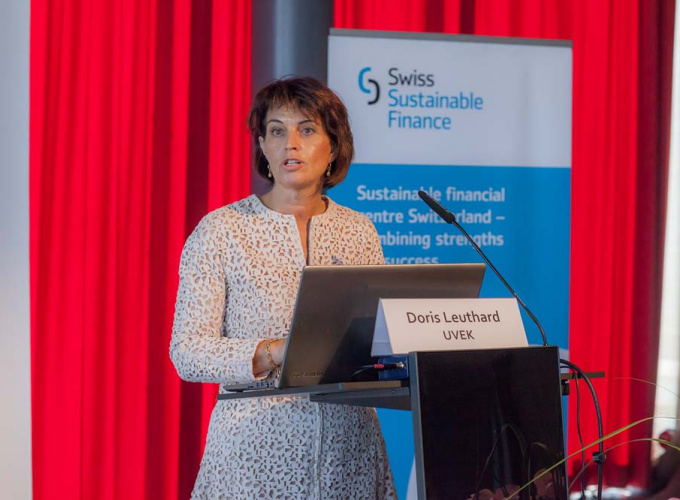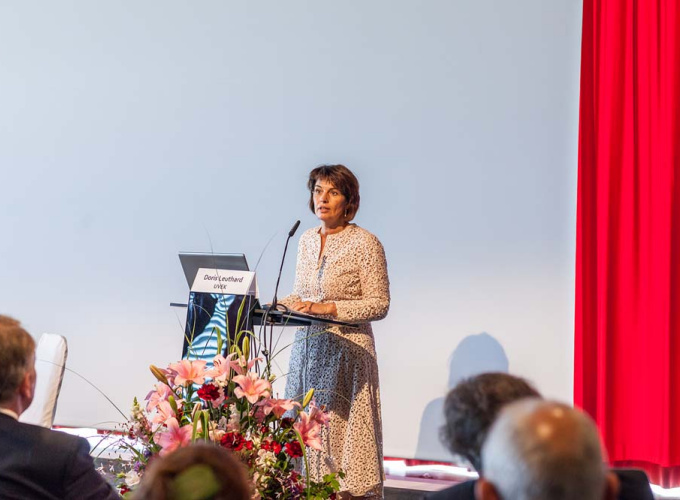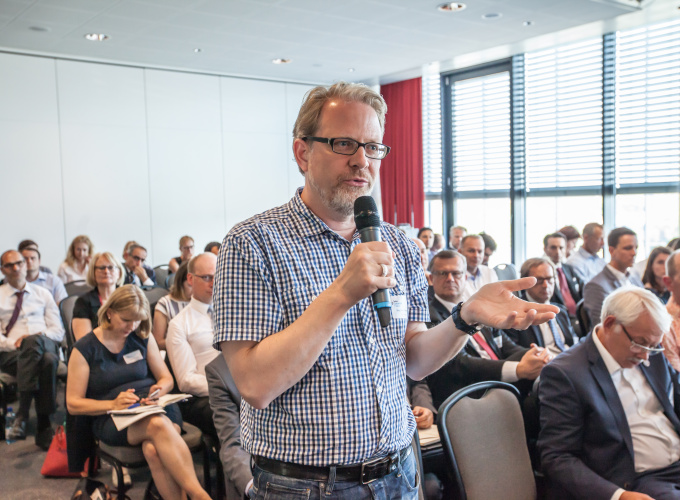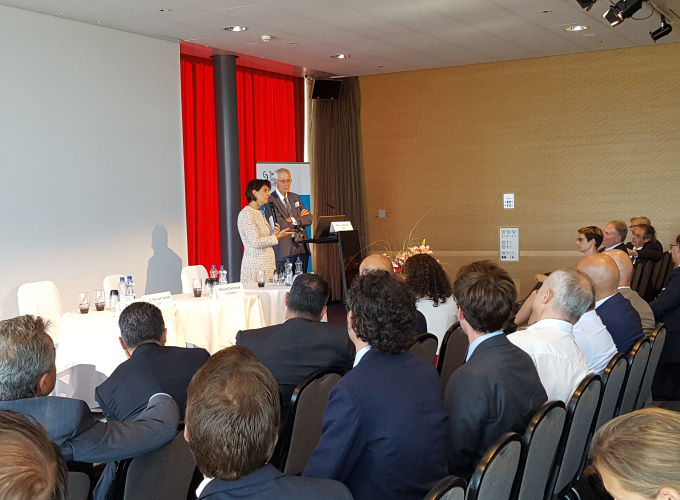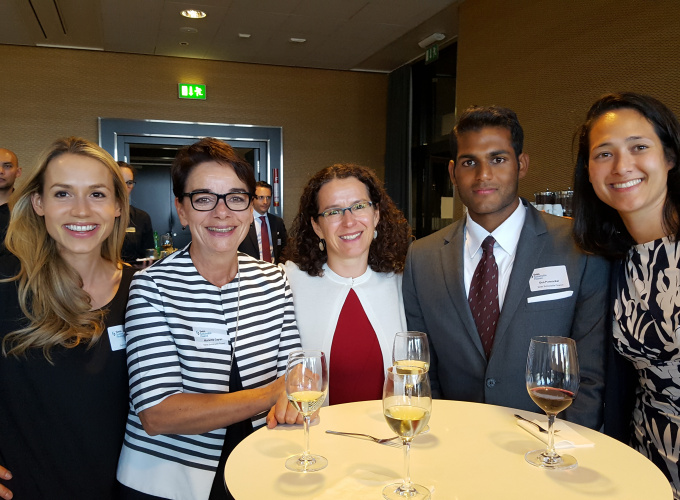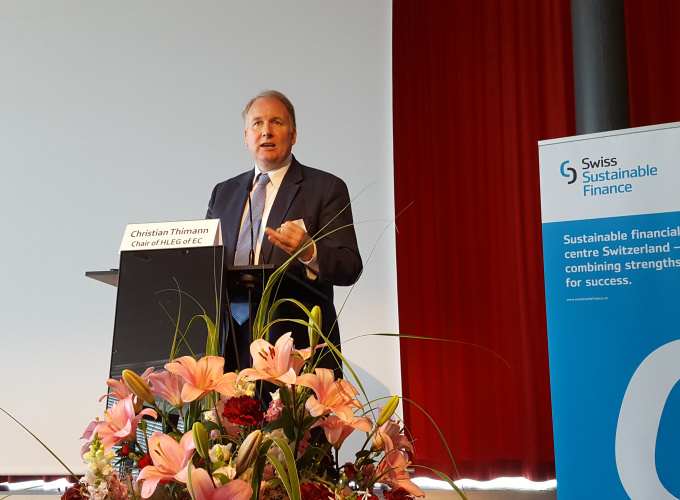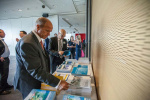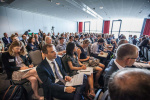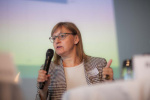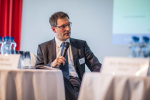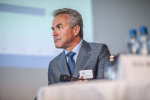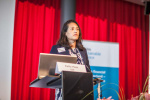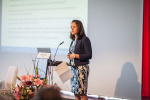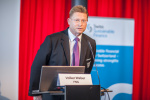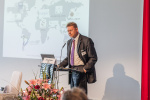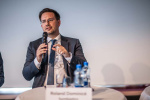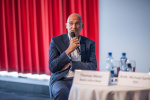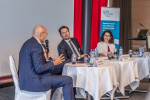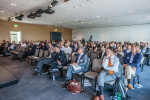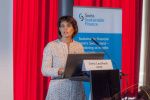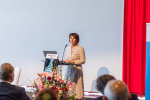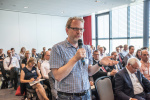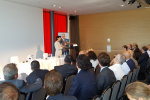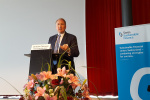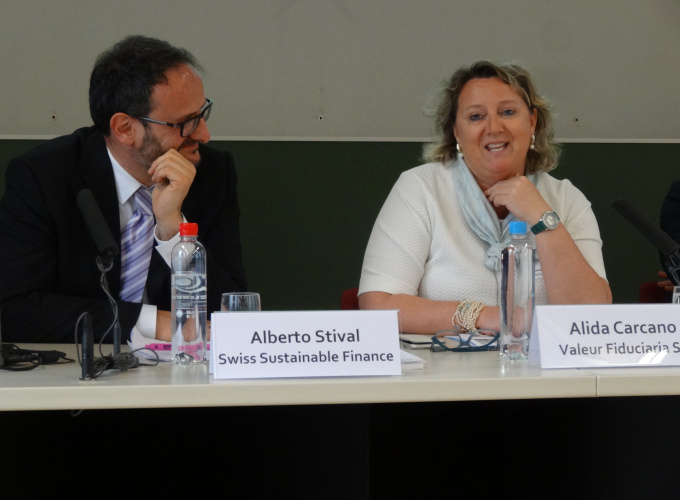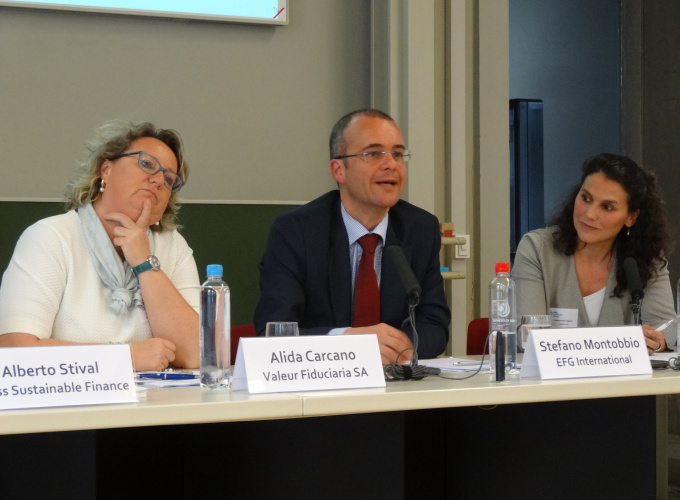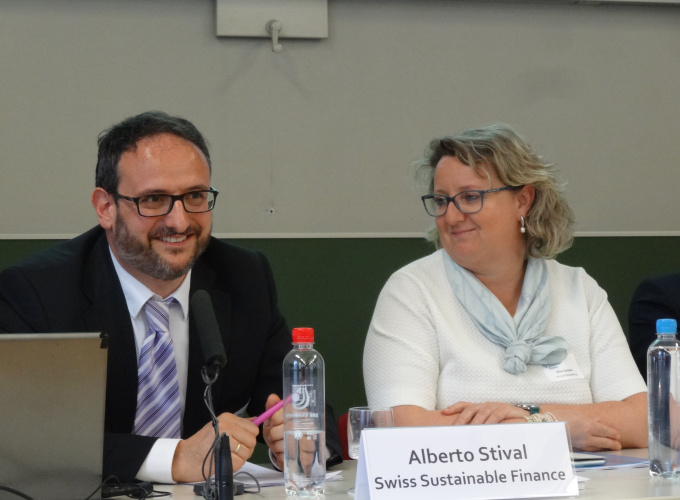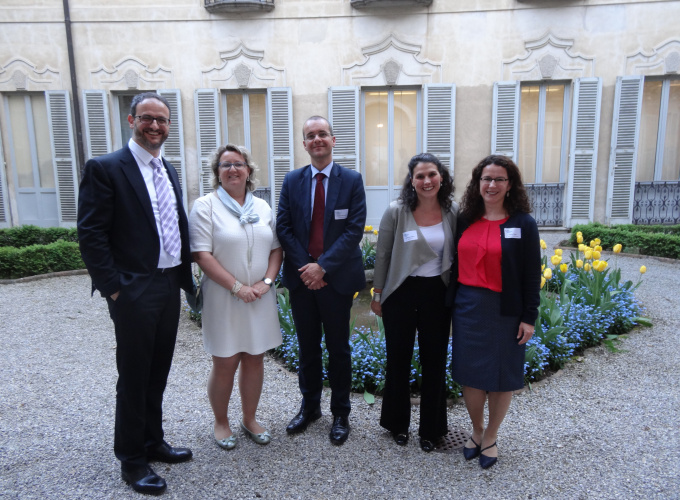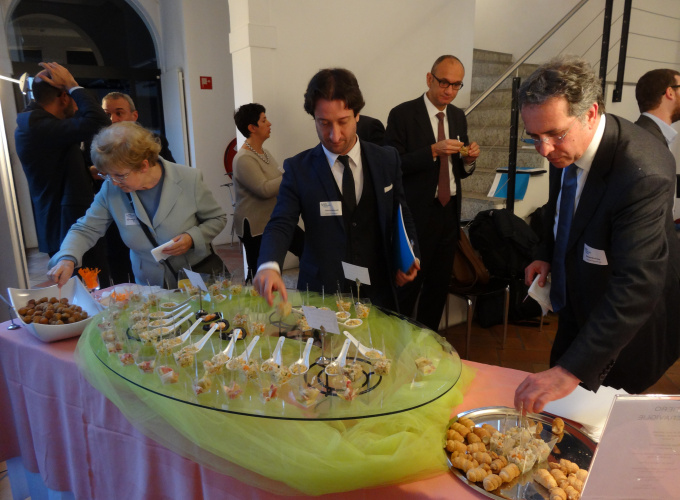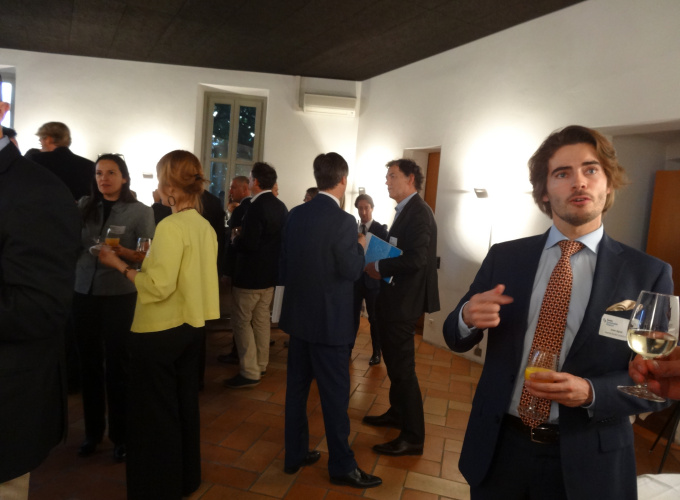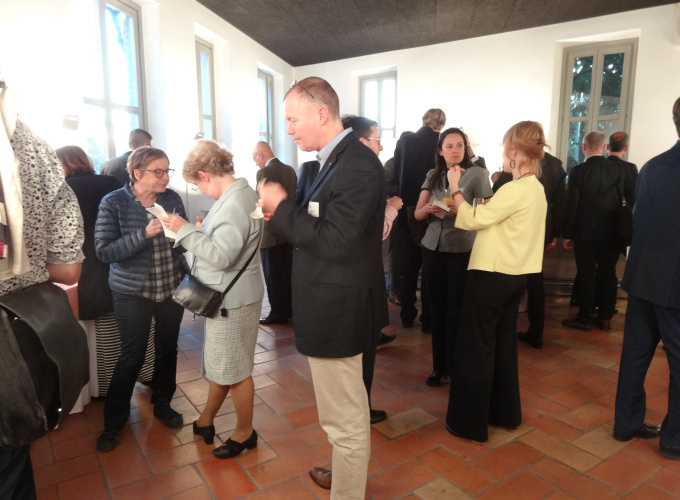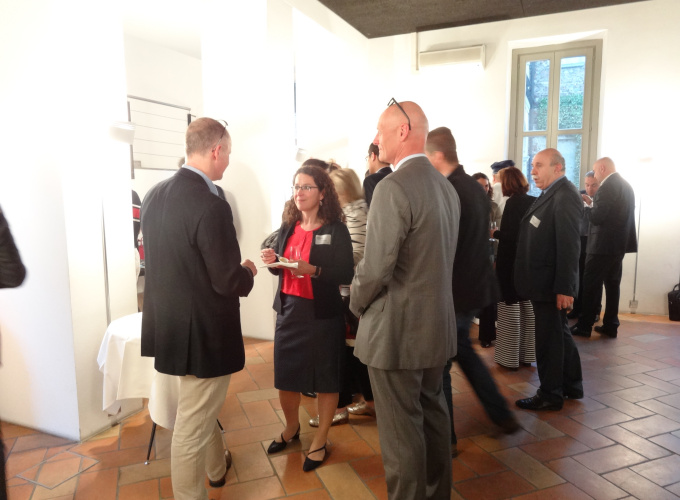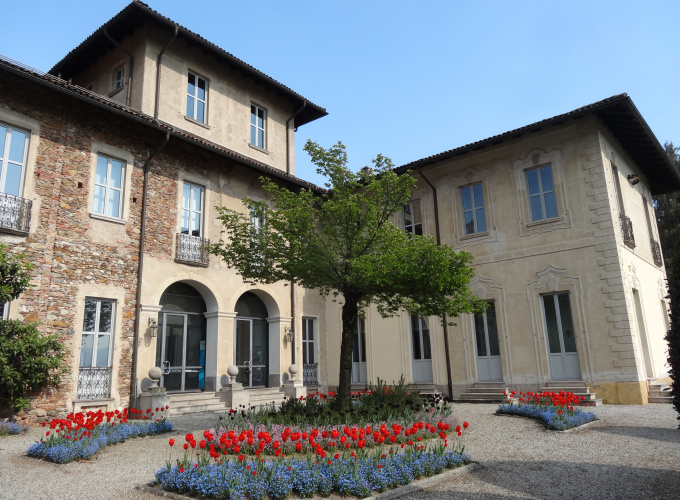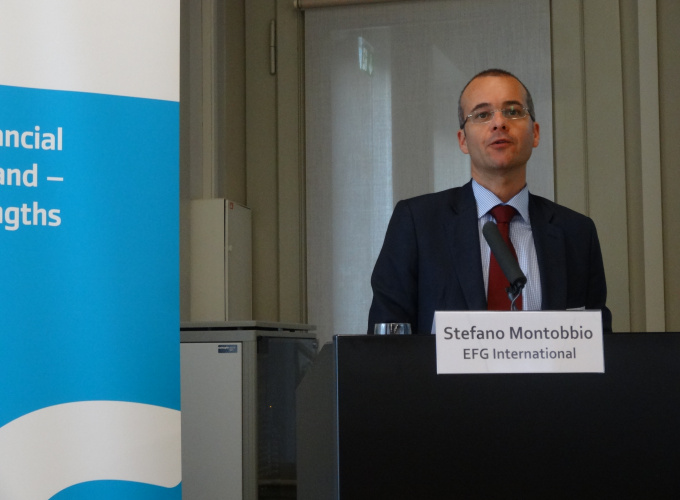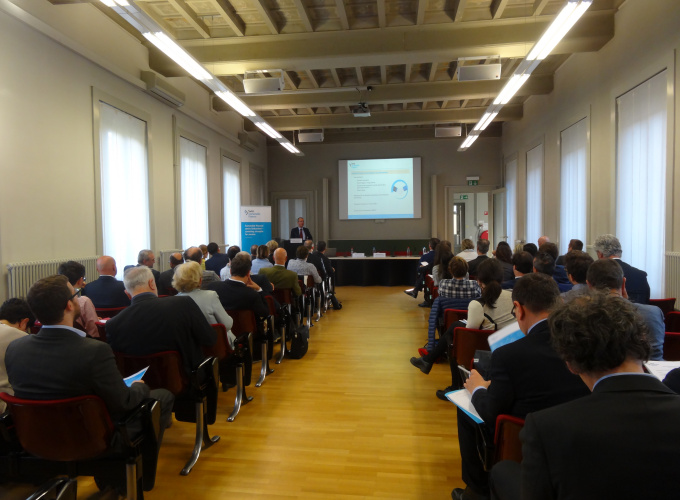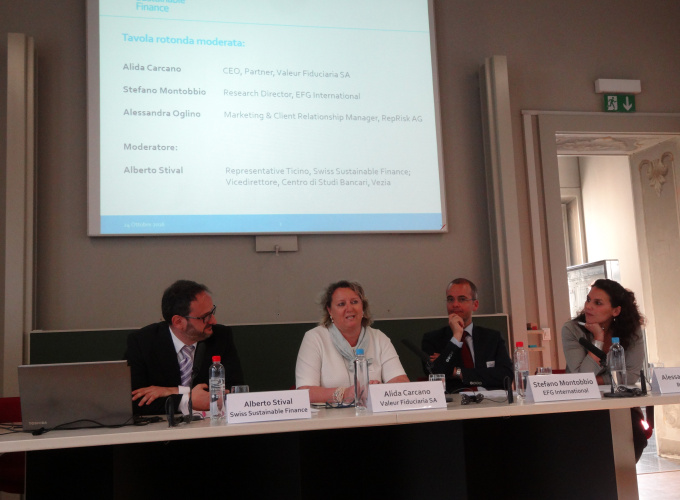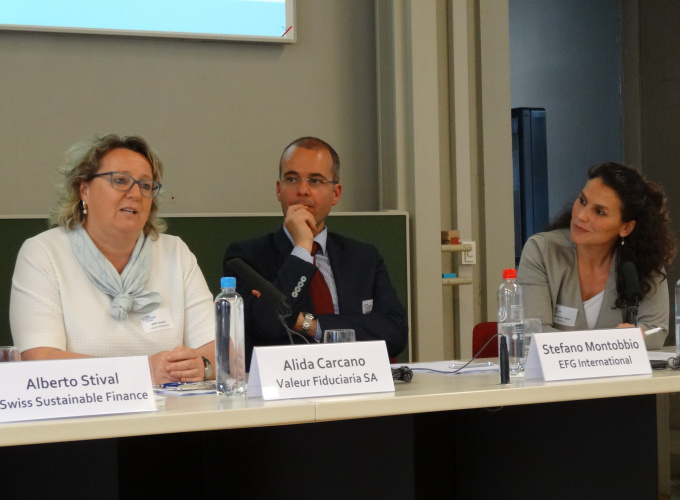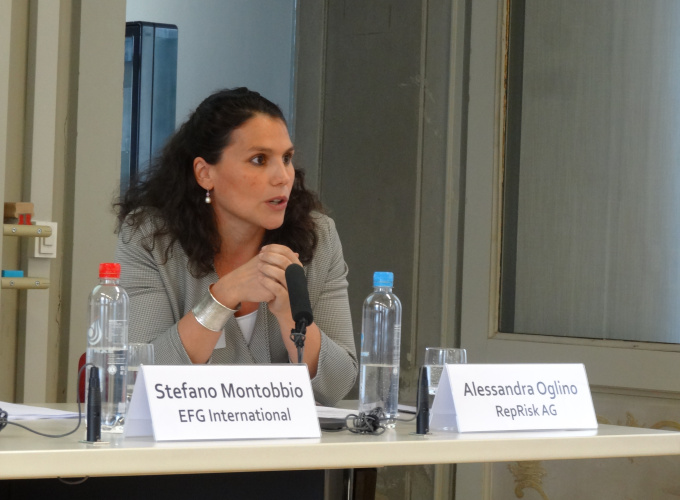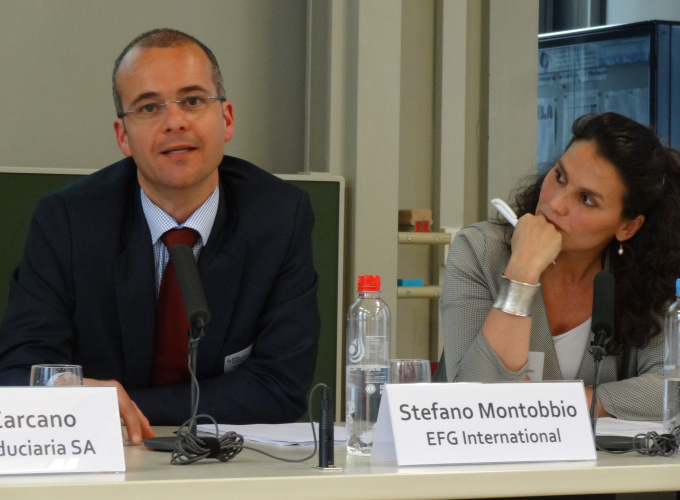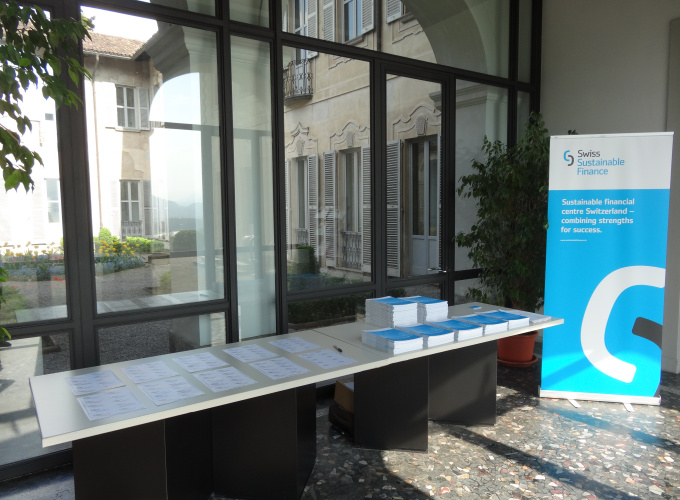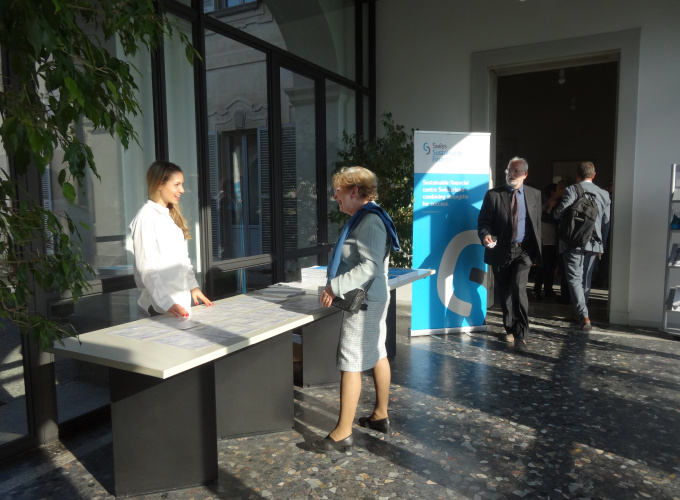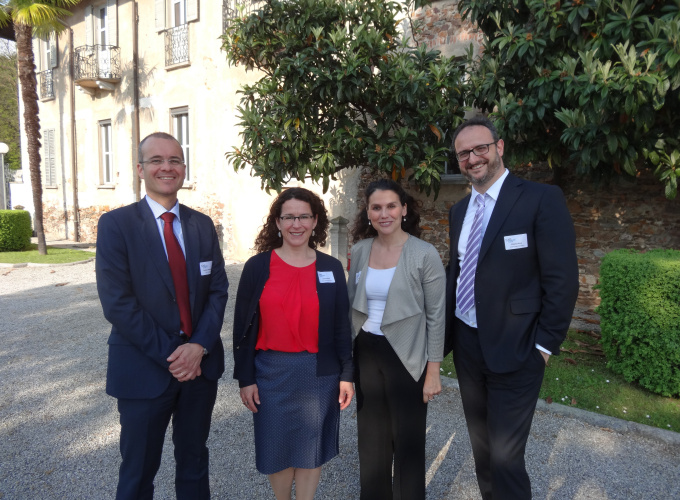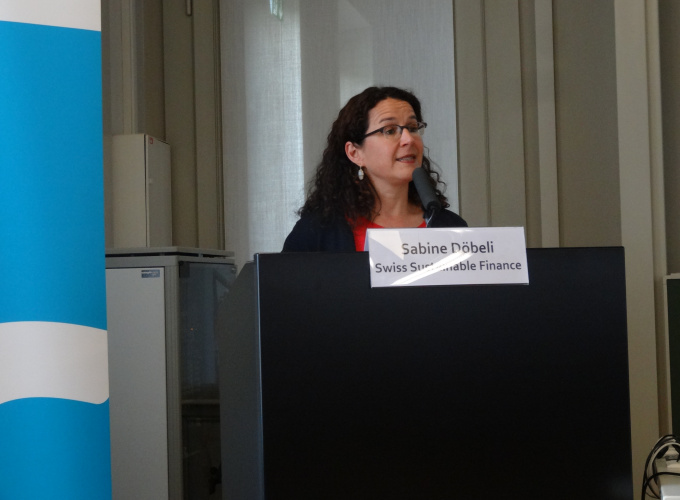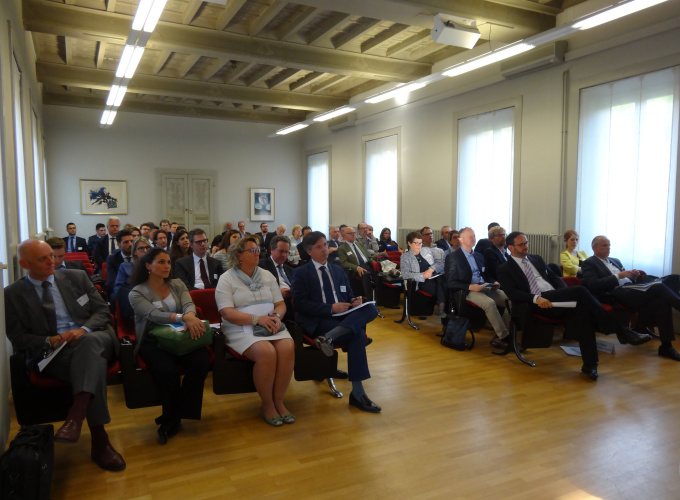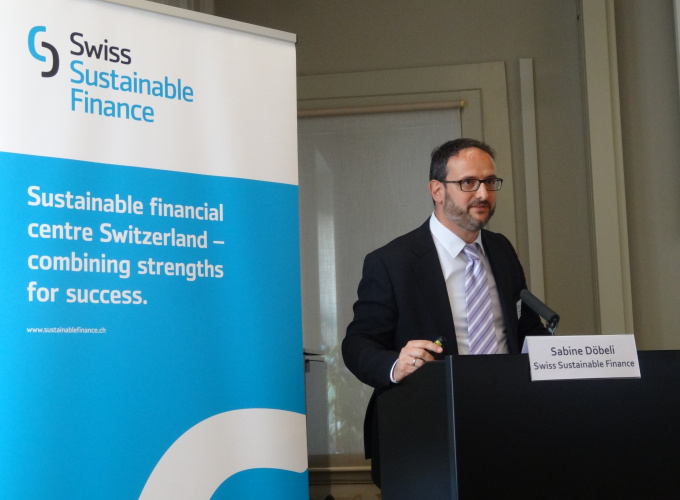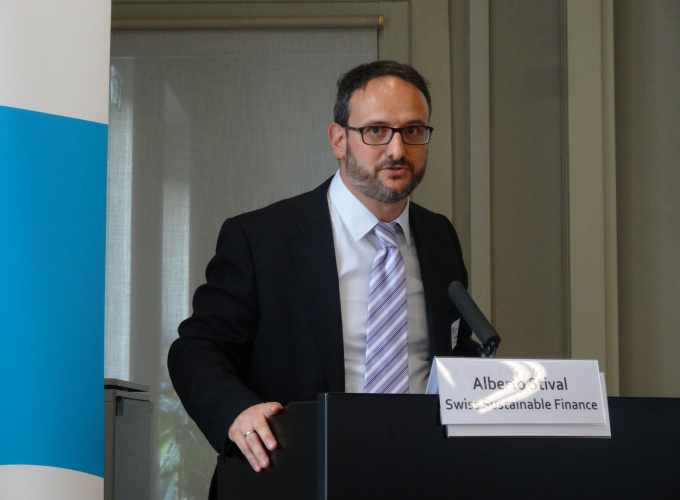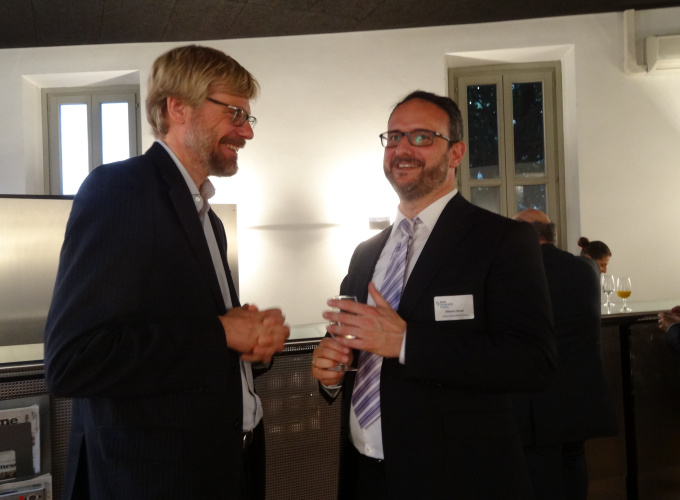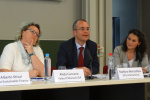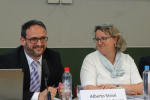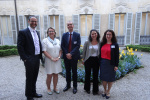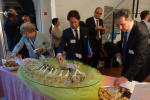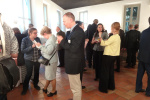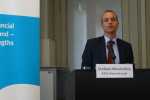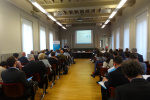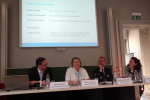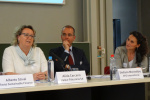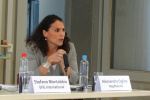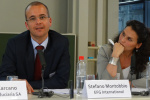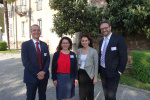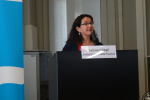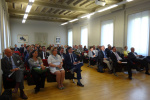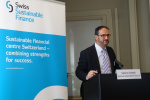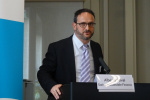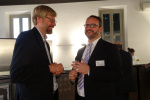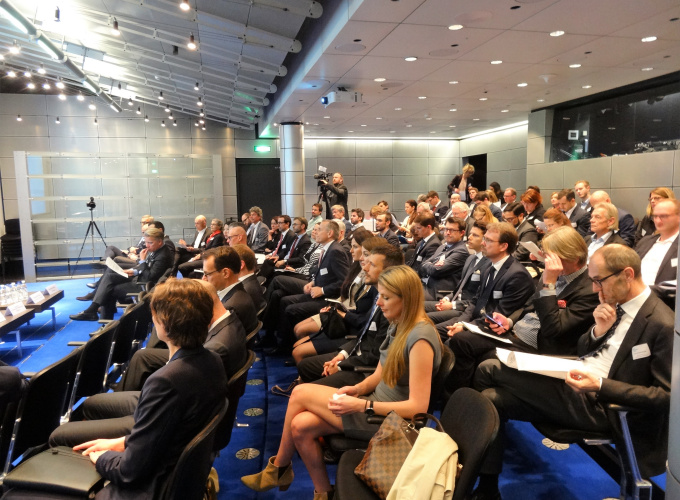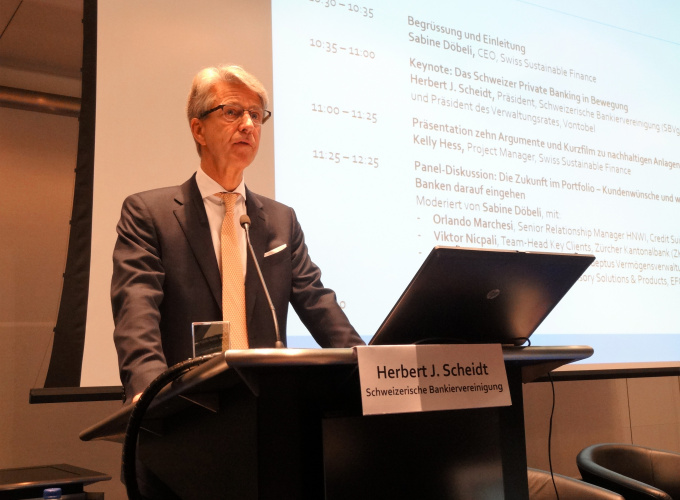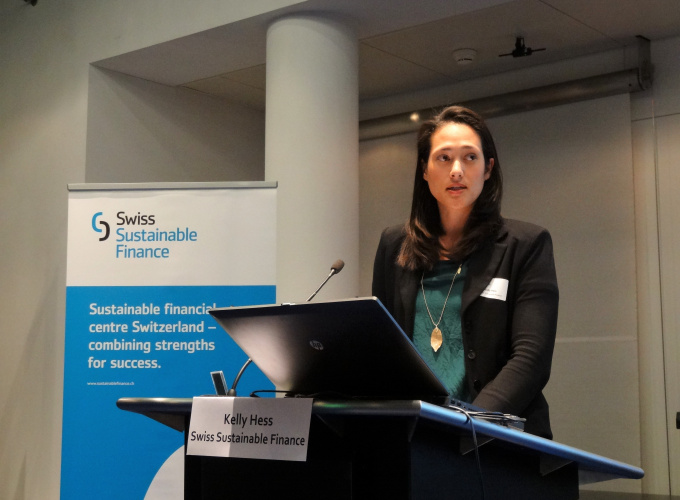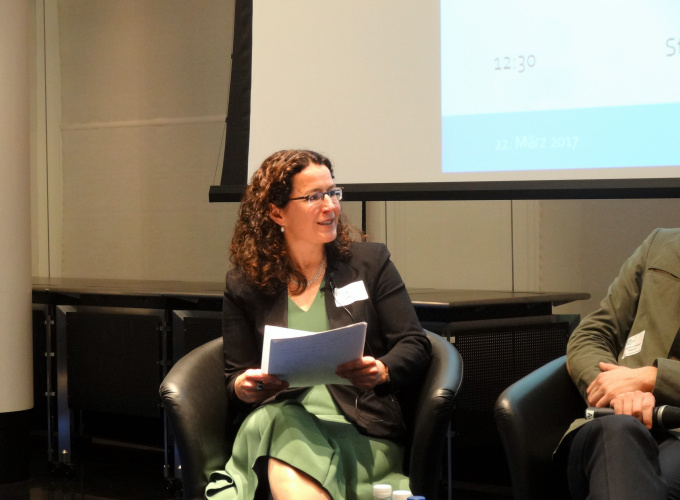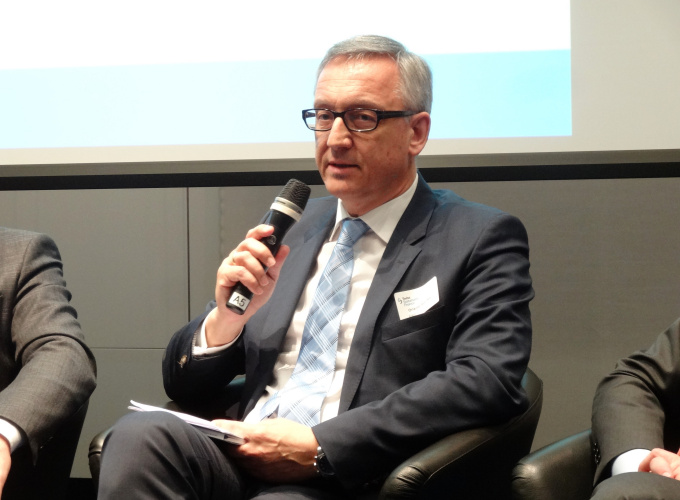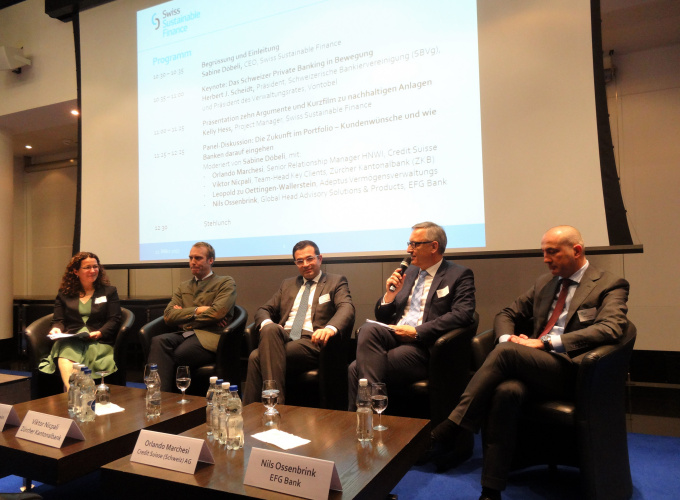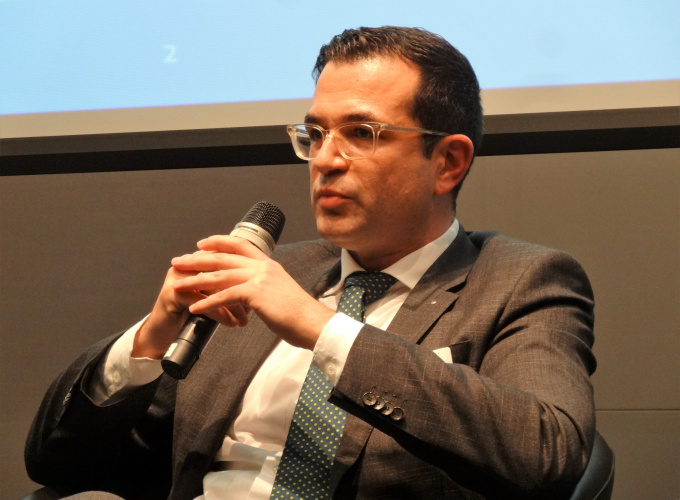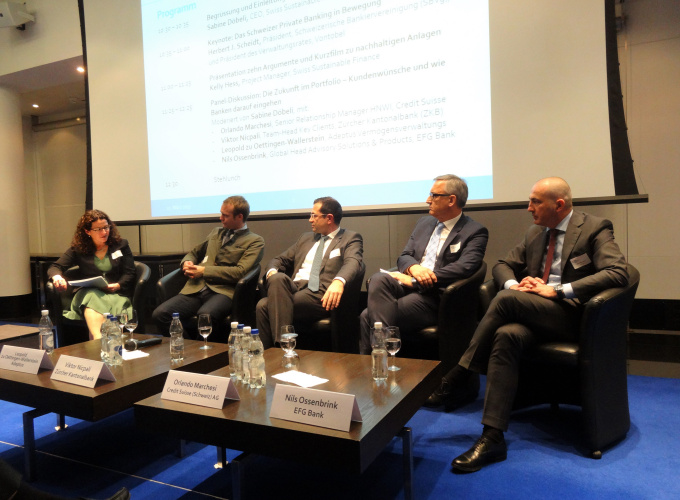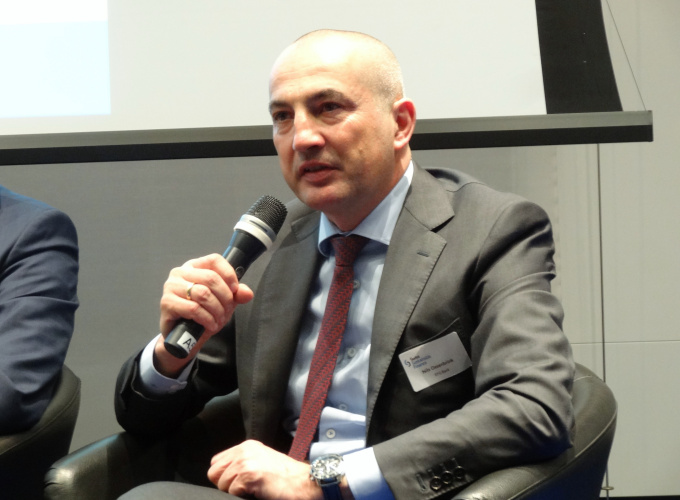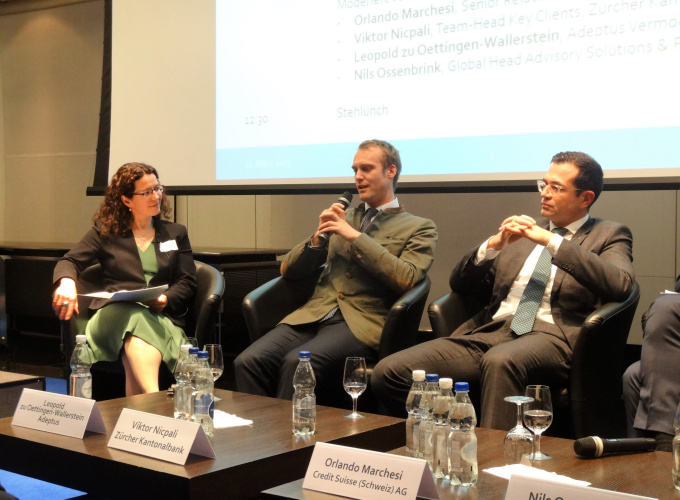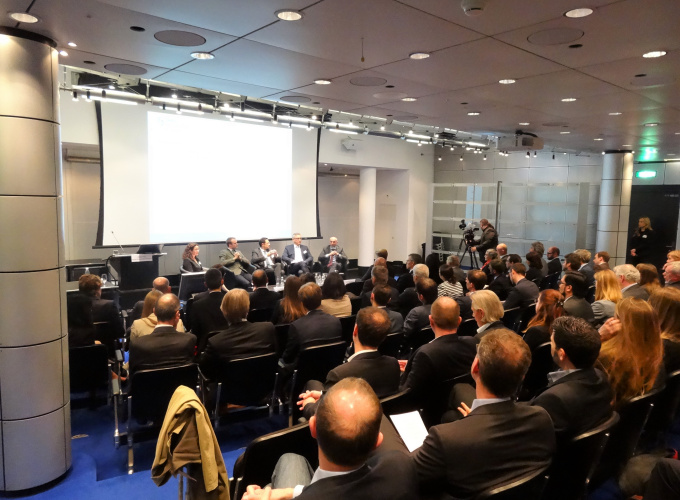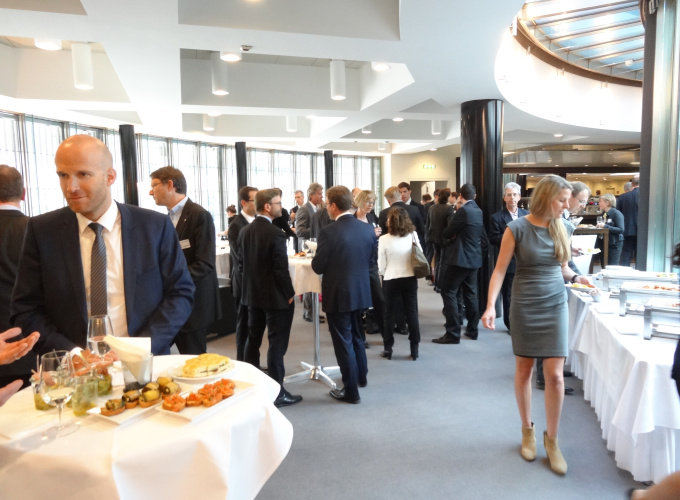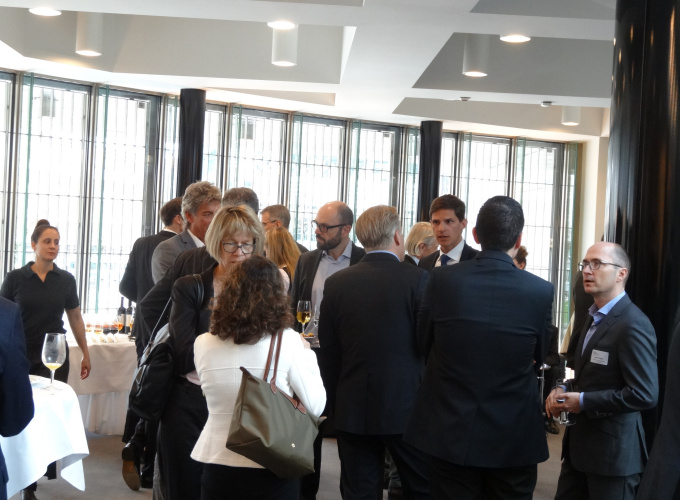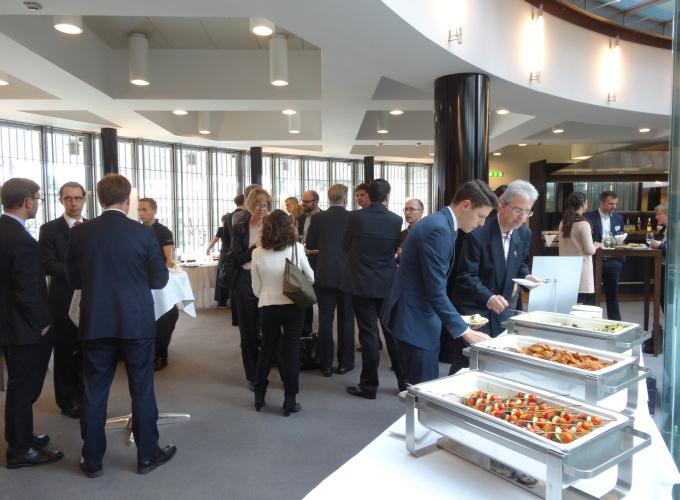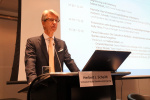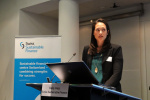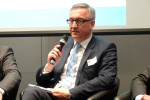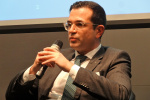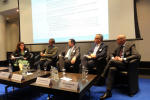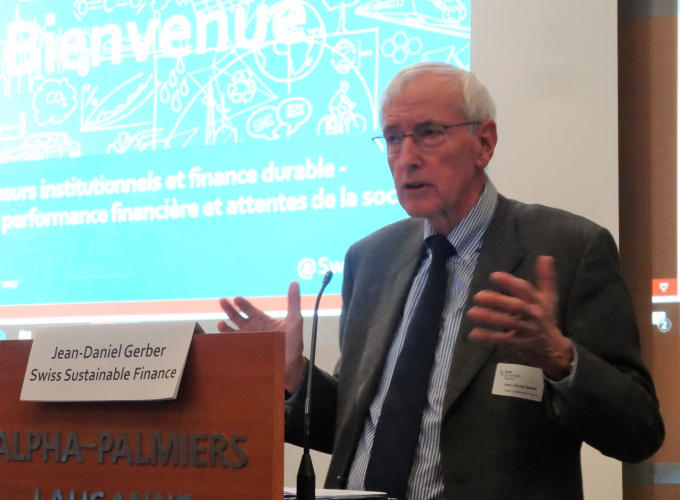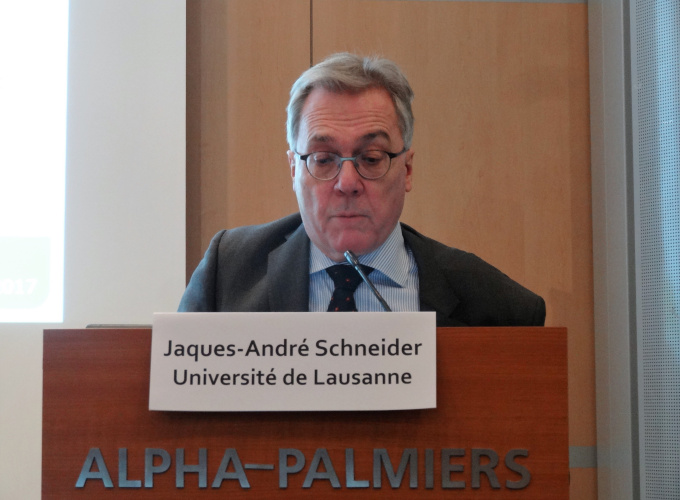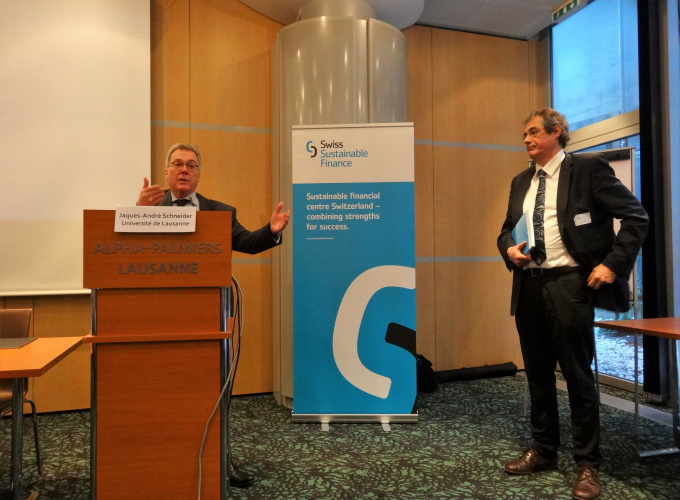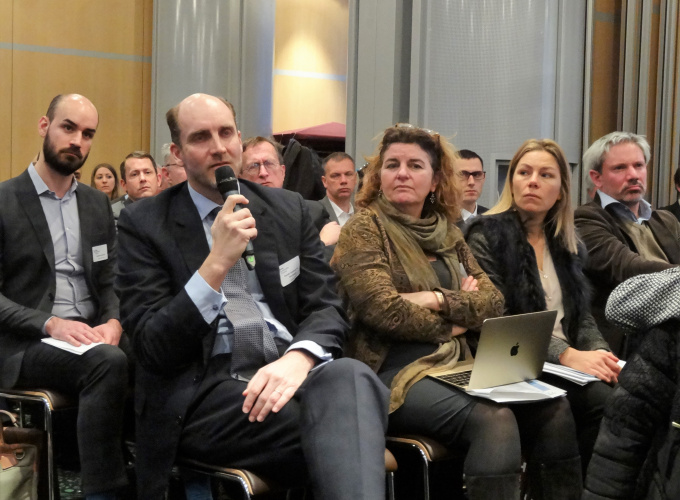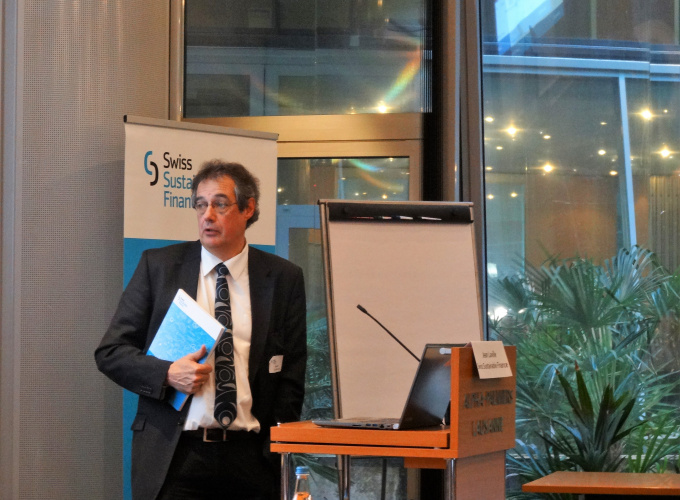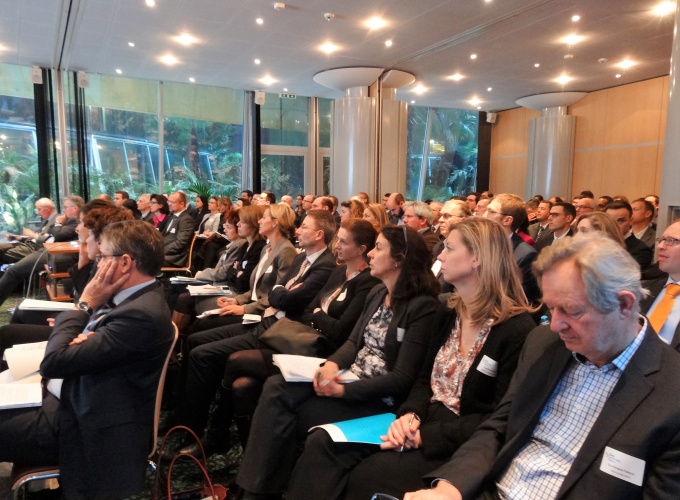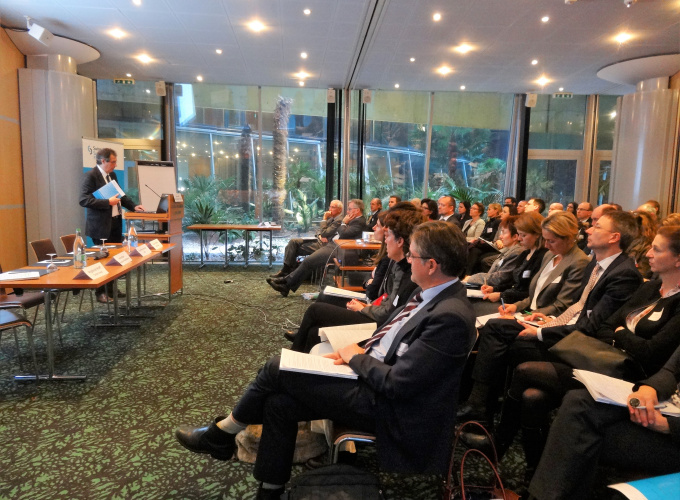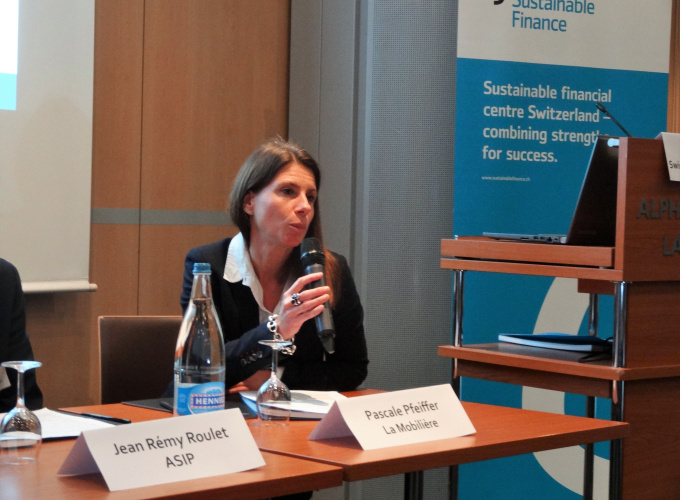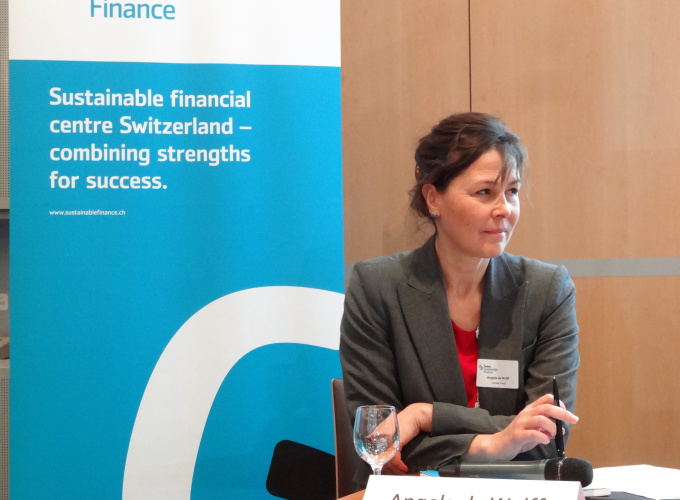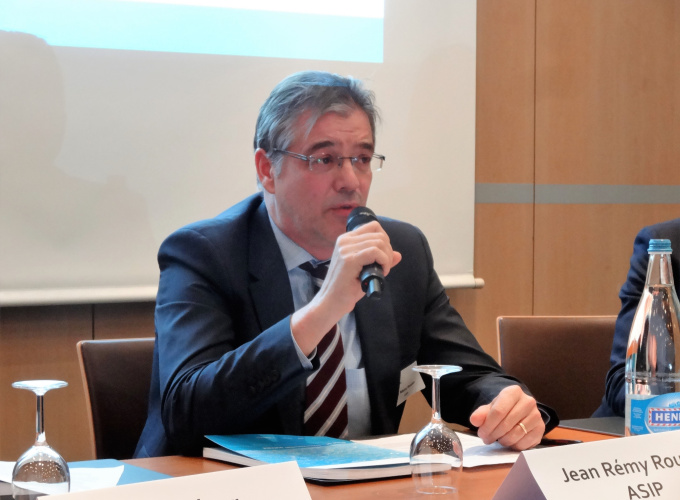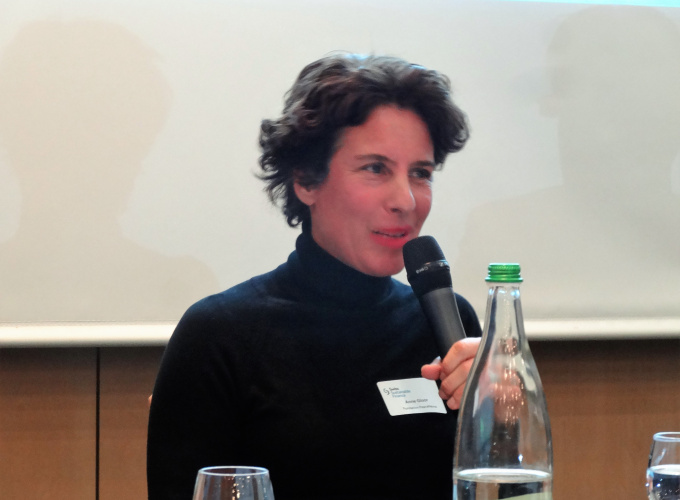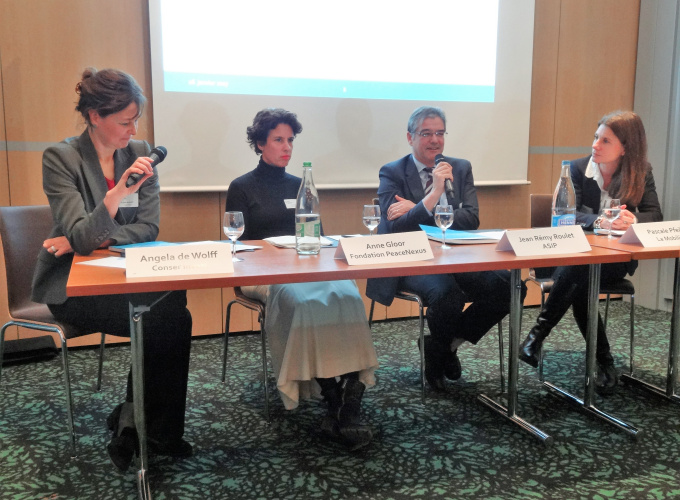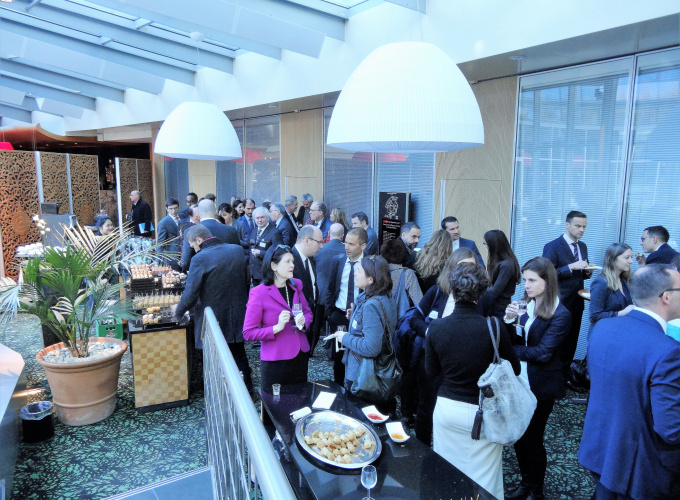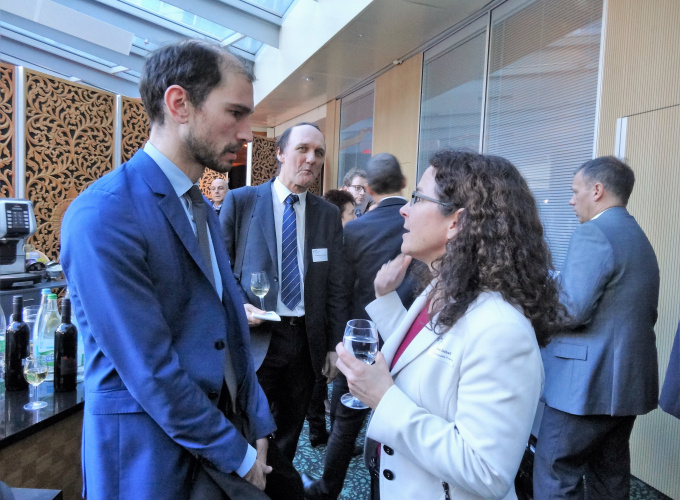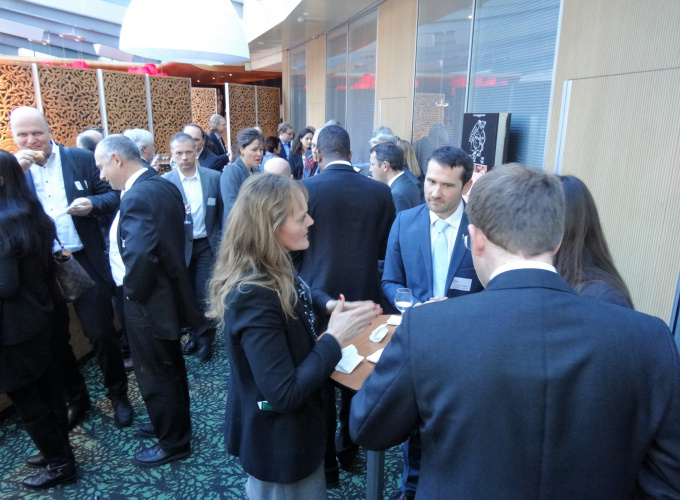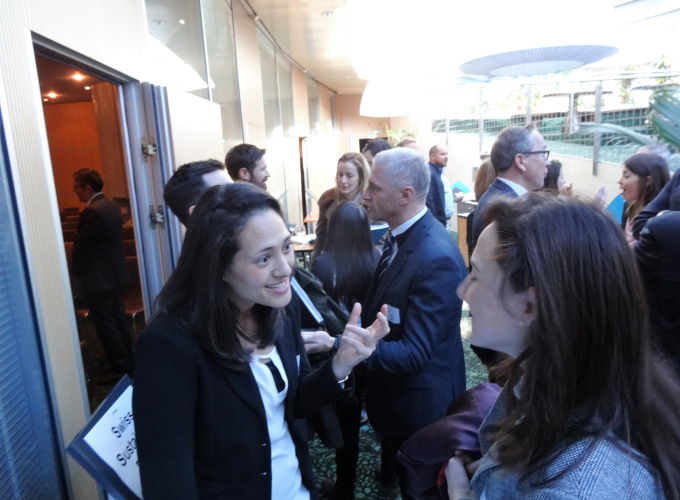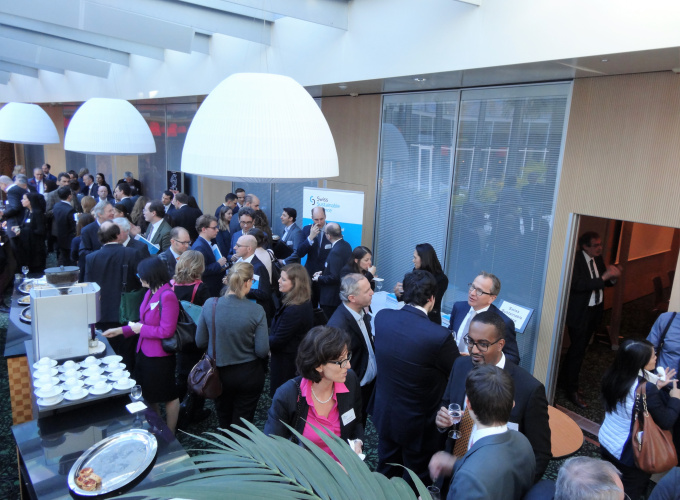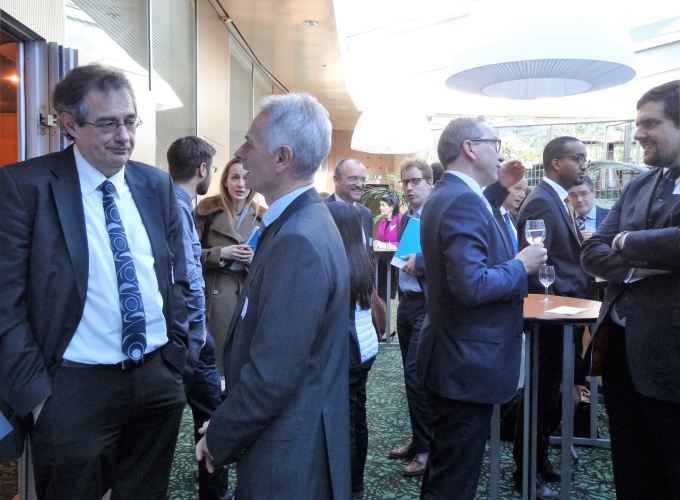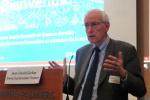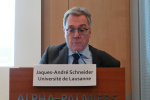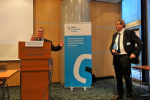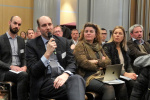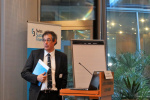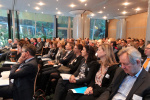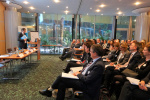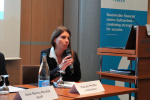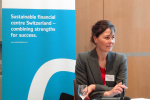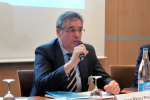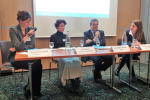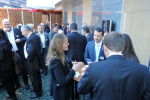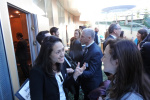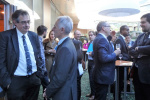SSF Events 2017
6 December 2017, China – Switzerland Climate Finance Cooperation Workshop
On 6 December, SSF, together with CCRS and University of Zurich, held a workshop aiming to facilitate an exchange among Swiss and Chinese experts and policy makers on the challenges to fund and implement the ambitious goals of the Paris Climate Agreement. The workshop was attended by about 40 experts in Zurich and virtually by a number of representatives in Beijing, China.
To kick-off the event, Philipp Aerni (Director of the Center for Corporate Responsibility and Sustainability – CCRS), Sabine Döbeli (CEO, SSF) and Marc Chesney (Head of the Institute of Banking and Finance, University of Zurich) welcomed the participants with some initial remarks on the topic of climate finance.
Afterwards, Jason Jiang, BHP Brugger & Research Affiliate at CCRS introduced the Chinese delegation: Mr. Ding Hui, Deputy Director, Division of General Affairs Department of Climate Change, National Development and Reform Commission, People's Republic of China and YE Yanfei, Director General, Department of Policy Research, China Banking Regulatory Commission – China’s Green Credit Policy and Climate Financing.
The Chinese representatives provided an overview on recent policy measures to promote a low carbon economy. They specifically addressed the carbon trading system that had been tested in different states as well as green bonds to finance energy efficiency measures.
Thereafter, Dr. Biarne Steffen (Energy Politics Group, ETH Zurich), Dr. Erika Meins (Sustainable Real Estate, CCRS), Dr. Falko Paetzold (Director, CSP, University of Zurich) and Prof. Stefano Battiston (FINEXUS, University of Zurich) introduced currently running programs in Zurich related to climate finance and sustainable investing.
In the afternoon, Sabine Döbeli moderated a panel of experts discussing the role of private sector solutions to address climate change. The presented tools ranged from Nature Conservations notes funding reforestation projects and investments into energy efficiency projects all the way to integrating climate risks into passive investment strategies in liquid assets. Panelists included Christopher Greenwald (Head of Sustainable Investment & Impact Investing, UBS), Renat Heuberger (CEO, South Pole Group), Stephan Hoch (Managing Director, Pespectives), Fabian Huwyler (Director, Sustainability Affairs at Credit Suisse) and Raphael Lüscher (Lead Porfoliomanager Swisscanto Green Invest Emerging Markets, Swisscanto, Zurich).
This was followed by a trio of influential voices, who gave their opinions on the challenges and opportunities in climate finance.
- Andrea Burkhardt (Swiss Federal Office of the Environment)
- David Bresch, Professor for Weather and Climate Risks at ETH Zurich
- Lucas Bretschger, Professor of Resource Economics at ETH Zurich and Vice-Chair of the foundation board of CCRS
Finally, to end the day, Prof. Michael Hengartner, President of the University of Zurich in his closing note outlined the importance of on solid education on climate finance, a task university of Zurich is well positioned to take on.
30 November 2017, Investimenti immobiliari sostenibili: creare valore a lungo termine per gli investitori
At this event taking place in Villa Negroni, SSF put a focus on sustainable real estate investment and thereby attracted a diverse audience of over 100 professionals comprised of architects, finance professionals, real estate evaluators as well as academics. Swiss players have seen growing interest in the field of green real estate investing, which is in tone with the current trends and represents an investment into the future. The event was held in partnership with the Swiss Real Estate Foundation (SVIT) Ticino.
The event was opened by greeting notes from Giuseppe Arrigoni, (president, SVIT Ticino) and Sabine Döbeli (CEO, SSF). In the following presentation by Giovanni Branca, (ISAAC - Istituto di sostenibilità applicata all'ambiente costruito, SUPSI) he described the various aspects of sustainability relevant for buildings, going far beyond energy efficiency but including aspects such as the use of recycled building material, flexible use and vicinity to public transport. Brenno Borradori, (SIV - Association of Swiss real estate evaluators) gave insights into different methods for evaluation of sustainable buildings. He introduced different sustainable building standards and stressed the importance of not just focusing on the end-rating but also consider the strengths and weaknesses unveiled by different rating systems such as ESI or SNBS.
The subsequent round table moderated by Giovanni Vergani (member of the Board, Pension Fund of Lugano), included Francesco Frontini (Head of Building System Sector, Swiss BiPV competence Center, ISAAC), Thierry Deluigi (President, SIV Ticino) and Matteo Pagani (Partner, Studio Fiduciario Pagani). The panelists agreed that sustainability was becoming ever more important for both professional and private builders although the market did not necessarily value all benefits sufficiently yet. Alberto Stival (SSF representative in Ticino) closed the event.
Download Sabine Döbeli's presentation
Download Giovanni Branca's presentation
Download real-estate chapter from SSF Handbook - German / French
Wealth Management with Impact (side event at UNEP FI Regional Roundtable for Sustainable Finance in Europe)
To celebrate its 25 year anniversary, UNEP FI organised Regional Roundtables to provide an opportunity for members and actors in the sustainable finance community to come together locally to discuss the latest trends and innovations, and share best practices. This year, the Regional Roundtable in Europe was held in partnership with SSF. At its side-event on 16 October, SSF explored the role of private investors in using their funds to create positive impact. Expert speakers discussed the existing demand from private clients and how it is driving the development of innovative products in the field. The panel discussion, including representatives from wealth management as well as impact investing specialists, shed light on the entire supply chain of such products: originating from the demand to the development, and finally to the implications of Sustainable Investing for investors and other stakeholders.
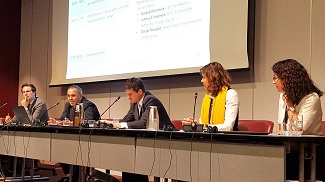
To open the session, Kelly Hess (Project manager, SSF) gave an overview of the sustainable investment landscape in Switzerland and elaborated on global trends such as elevated sustainability awareness of millennials and higher demand for sustainable investment products of private investors. Bertrand Gacon (Head SRI & Impact Investing, Lombard Odier) and Philip Walker (Managing Director, Investments Africa, Obviam) followed with descriptions of how impactful investment has transitioned from a push to a pull product (driven by demand from investors). Younger investors increasingly expect transparency concerning the impact of their portfolios, which is influencing how the industry is dealing with impact reporting, a theme that is currently high priority for many key players in the field. Practical examples of impact investments in emerging countries underlined the importance of first clearly defining the intent of the investment in order to be able to obtain reliable impact data.
In the following panel discussion moderated by Angela de Wolff (partner, Conser Invest), the panelists Roland Dominicé (CEO, Symbiotics), Johnny El Hachem (CEO, Edmond de Rothschild Private Equity) and Olivier Rousset (Head Impact Investments Credit Suisse) agreed that they are seeing increased demand for products that show true impact. Yet, it is often difficult for asset managers to promote impactful products through the internal investment committee in the face of their shorter track record, limited liquidity and perceived higher risks. In this regard, the panellists brought many examples to prove the opposite. They pointed out that risk of impact investments in developing countries is often overestimated relative to that of traditional investment. Finally, the speakers also stressed that impact investments are by no means geographically limited to developing countries. What was clear from the discussions was that the role of the financial industry was to service the real economy and impact investing is one way to help get us to this point.
Download Kelly Hess's presentation
Download Bertrand Gacon's presentation
Download Philip Walker's presentation
More information on the UNEP regional roundtables
CFA Society Switzerland & SSF: the Role of ESG Integration for Swiss Asset Owners
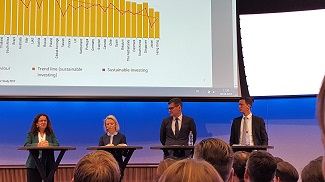
As a side event of the joint PRI & CFA workshop in Switzerland, SSF co-hosted an afternoon public event on the practices of ESG integration of Swiss institutional investors. After an introduction presentation by Elena Philipova (Thomson Reuters), 3 asset owners took the stage for an exciting expert panel moderated by Sabine Döbeli (CEO, SSF). The three panelists, Matthias Ramser (Head of Portfolio Management, suva), Fabian Padun (Portfolio Manager - ESG specialist, die Mobiliar) and Sonja Stadtelmeyer-Petru (ESG specialist, Allianz Investment Management), described their different approaches to integrating ESG into their investment strategy and afterwards fielded questions from the audience, which lead to interesting discussions.
Public side event to the Swiss Sustainable Finance Members' Assembly 2017: Finance for the future - Is Switzerland on track?
Following SSF’s annual Members’ Assembly, SSF hosted an afternoon event for its members and other stakeholders. Approximately 200 professionals filled the room to enjoy the program which was filled with expert speakers and exceptional keynotes.
Jean-Daniel Gerber (President, SSF) kicked off the event with a short welcome note. He then introduced the first keynote, Christian Thimann (Chair of the High Level Expert Group (HLEG) on sustainable finance of the European Commission, Group Head of Regulation, Sustainability and Insurance Foresight, Axa Group). He explained that both financial and industry actors should adapt their practices to help reach global goals. In his role as Chair of the HLEG, Thimann outlined that they were chartered with questions such as how to define what a sustainable financial system looks like, how to integrate sustainability into regulations and how to change perceptions around sustainable finance in the form of defining taxonomy, standards and norms. Another profound insight from Thimann came when he stated that tackling climate change simultaneously results in positive effects on many other long-term societal issues, such as poverty or water scarcity which are closely linked to climate issues. In concluding he gave his reply to the lead question of the conference, if Switzerland was on track, as follow: yes it is, but Switzerland must maintain momentum to keep pace with others. Watch full keynote.
Subsequently, a series of four interviews were held on the developments and the progress made in the areas asset and wealth management, institutional investors, credit business and education since “Proposals for a Roadmap towards a Sustainable Financial System in Switzerland” was published a year ago. The interviews were based on survey results gathered from the SSF network and consolidated in the publication Proposals for a Roadmap - SSF members voice opinions one year on.
When Jan Amrit Poser (Chief Strategist & Head Sustainability, Bank J. Safra Sarasin) was asked by Jean Laville to state some of the most important developments within asset management, he stressed that the international consensus about the urgency of climate change and a global sustainable development agenda gained visibility in the financial world and generated unprecedented interest from investors. As a result, an increasing number of asset managers already offer or are in the process of creating new products to match the Paris Agreement and the Sustainable Development Goals (SDGs).
Jürg Tobler (Head Asset Management, Pensionskasse Stadt Zürich), interviewed by Beatrice Zwicky, recounted that an important development for institutional investors occurred in late 2015, when we saw the founding of the Swiss responsible investment association, SVVK-ASIR. He also stressed that specifically around the climate topic or general governance criteria there would be more engagement activities. In a forecast for the future, he sees increased demand for transparency from beneficiaries, governmental authorities and the media.
Erol Bilecen (CSR Consultant, Raiffeisen Schweiz), interviewed by Eric Borremans, explained that with regard to Swiss banks’ credit business, room for activities lie more on the opportunity side than on the risk side because many of the typical environmental and social risks are regulated in detail by Swiss law. Further opportunities would therefore exist for programs meant to capitalise on and encourage Switzerland’s new energy strategy (i.e. encouraging borrowers such as home-owners and SMEs to implement sustainable projects and adopt energy saving or resource efficiency strategies).
Marc Chesney (Head of Department of Banking and Finance, Professor of Quantitative Finance, University of Zurich), interviewed by Alberto Stival, told the audience of the high interest the topic nowadays attracts both from students as well as experienced professionals working in the finance industry. With many new offerings in this regard, he was optimistic that Switzerland is well on track to play a leading role in sustainable finance education.
After a networking coffee break, Kelly Hess (Project Manager, SSF) and Volker Weber (President, Forum Nachhaltige Geldanlagen) presented the latest sustainable investment data for Switzerland and the DACH-Region. The report is available on the SSF website.
The following panel was on the topic of innovation for sustainable finance – role of Switzerland in driving change, moderated by Sabine Döbeli.
Ambassador Michael Gerber (Special Envoy for Sustainable Development, Swiss Agency for Development and Cooperation) first explained how the principles that were defined to finance the Sustainable Development Goals (SDGs) affected the international community over the past two years. Although many countries have already adopted the global principles, he sees that the key lies with national initiatives to raise sufficient funds needed to finance the SDGs. To attract more interest and action from the private sector, he suggested to raise money using Green Bonds and offering more Impact Investing products. Switzerland has a strong position to unleash its potential thanks to the strength of its financial center and its know-how in investments for development.
Roland Dominicé (CEO, Symbiotics) explained the status quo of Switzerland being a market leader in investments for development with the deeply embedded liberal values of the Swiss society and the tradition of humanitarian aid. However, the spirit of innovator cannot be attributed to Switzerland alone since others also share this entrepreneurial spirit. Nevertheless, he pointed to a cooperation currently running between UBS, SECO and Symbiotics for a blended finance product. This is an example of how private wealth is used within Switzerland for innovative solutions.
To complement the valuable inputs of the first two panellists, Thomas Meier (Head Corporate Sustainabiltiy, Bank Julius Baer) commented on challenges for banks in integrating sustainability into the core offering of a bank. He feels that the main driver to reinforce sustainable finance is the private industry. From his own experience having lived in Asia, addressing sustainability issues is an imperative and the basis for future competitiveness both for banks and other industries.
The highlight of the event was the speech held by the President of the Swiss confederation, Federal Councillor Doris Leuthard. In referring to the vital role banks had for the establishment of the Swiss railway system in the 1800s, she stressed the equal importance of Swiss financial players in supporting the transition to a new energy system. She clearly stated that the world’s course towards a green economy cannot be reversed despite some players opposing the Paris agreement. At the same time she encouraged the Swiss private sector to actively contribute to the definition of standards and innovative solutions, as others would not wait to set the pace. With the inspiring call on the audience to take over the role of an Alfred Escher of our time and seize the opportunities sustainable finance could provide for Switzerland, she brought the sequence of presentations to a perfect end. Participants then followed SSF’s invitation to continue discussions at the consequent Apéro.
Download publication: Proposals for a Roadmap: SSF members voice opinions one year on
Download the market report presentation
Download the event presentation
Watch Christian Thimann's keynote
Event summary video will be available here soon!
10 April 2017, Investimenti sostenibili: il manuale e l'argomentario per gli adetti ai lavori
With the presentation of its latest two publications in Ticino, SSF managed to attract the attention of around 80 finance professionals. At an event taking place in Villa Negroni near Lugano on 10 April, the two publications were presented and in a lively panel discussion recent developments in the field of sustainable investments were debated jointly with the audience.
Alberto Stival, SSF representative in Ticino, first provided an encompassing overview on the intention behind and content of the handbook on sustainable investments. He stressed the broad array of different sustainable investment approaches available today, all of which are described in the handbook. As illustrated by some statements of leading institutional asset owner associations’ representatives, motives for investing sustainably vary considerably, while all of them expressed their conviction, that it’s the way forward for institutional investors.
In the second part, Stefano Montobbio, Research Director at EFG International and leader of SSF’s private wealth management workgroup illustrated the 10 arguments for sustainable investing presented in the latest SSF publication. Referring to different studies prepared in his own research department as well as by third parties, he brought some flesh to the bone of the arguments. One chart based on own data, showed companies with high ESG scores outperforming low ESG score companies while having considerably lower volatility over the past five years.
In the panel discussion, Alida Carcano, CEO and Partner of Valeur Fiduciaria, and Alessandra Oligno, Marketing & Client Relationship Manager at RepRisk, in addition to Stefano, provided practical insights into changing client demand. According to Alida’s experience, the attention of private clients for such investments can easily be gained by talking about a specific subject, such as the benefit of gender diversity. Alessandra described the changing demand for data on reputational risks, first only relevant for investment banks in their lending process and now mainly for investors to eliminate risks. The inputs from the audience reflected the fact that sustainable investing increasingly appears on the radar both of institutional as of private clients, in Ticino as much as elsewhere.
Download Alberto Stival's presentation
Download SSF handbook on sustainable investments
Download Stefano Montobbio' presentation
Download SSF publication on 10 arguments
22 March 2017, Die Zukunft im Portfolio – wie Banken auf veränderte Kundenbedürfnisse eingehen
On 22 March, Swiss Sustainable Finance held an event in Zurich to present its newest publication for client advisors in Swiss private banking. The following short summary film captures important voices and messages from the day.
The new SSF report "Sustainable investing: A unique opportunity for Swiss Private Wealth Management – Ten arguments and practical tools for client advisors", accompanied by a short film on this topic, highlights the opportunity created for Swiss private banking by the combination of Swiss strengths and clients’ growing demand for investments with a positive impact.
Sabine Döbeli (CEO, SSF) welcomed the audience of 100 professionals and introduced the keynote speaker Herbert J. Scheidt (President, SBA). Mr. Scheidt took the opportunity to present facts and recent examples that illustrate how Swiss private banking and asset management is in a state of flux. He reminded the audience that sustainable investments can serve to advance the market and ultimately add to the already strong Swiss financial centre. He closed his speech with a call to action directed at the entire industry to further engage in the topic and increase efforts to incorporate sustainable investing in their activities.
Following the keynote, Kelly Hess (Project Manager, SSF) presented the report’s 10 arguments for sustainable investments in more detail. She outlined that there is in fact already increasing client interest in sustainable investments, but advisors nevertheless hesitate to bring forth this topic when discussing investment opportunities. In close cooperation with its private wealth management workgroup, SSF therefore developed a convincing set of arguments for Swiss banks to take advantage of this increasing demand for sustainable investments. The arguments can be grouped into the 3 categories improved client interaction, positive effects on financial performance and close correlation with traditional Swiss strengths. Each argument in the report is supported by numerous studies and quotations from clients and advisors. SSF also presented additional supporting material related to the 10 arguments aimed at helping advisors to effectively bring up the subject in their client meetings. Finally, SSF debuted a short film targeted specifically at client advisors and wealth managers at the end of the presentation.
During the panel, discussion revolved around how Swiss banks are reacting to growing client interest in sustainability and corresponding financial products. Leopold zu Oettingen-Wallerstein (Adeptus Vermögensverwaltungs-GmbH) brought into the discussion the perspective of a “next generation” high net worth individual and shared his view that banks are not focusing their activities on engaging with the next generation of investors and rarely offer them products with direct impact. He encouraged them to foster an inter-generational dialogue within wealthy families to engage them in long-term investment strategies. Orlando Marchesi (Senior Relationship Manager HNWI, Credit Suisse) gave insights into the value impact products offer to his clients and explained how developing sustainable investment strategies is especially relevant for foundations. Viktor Nicpali (Team-Head Key Clients, ZKB) confirmed that talking about sustainability offers new insights into client preferences and personal values and therewith deepens the client relationship. Nils Ossenbrink (Global Head Advisory Solutions & Products, EFG Bank) gained experience in mainstreaming sustainable investment strategies in previous roles and sees it as an important element of high quality asset management to integrate ESG factors into the process. The four panellists agreed that important developments are indeed underway, however there is still ample room for improvement for sustainable investments in the Swiss financial centre.
Download Herbert J. Scheidt's keynote speech
(The spoken word takes precedence)
Download Kelly Hess' presentation
26 January 2017, Behind the scenes - the final TCFD report and its consequences for the financial sector
The Taskforce on Climate related Financial Disclosure (TCFD) was established by the Financial Stability Board (FSB) and mandated to produce recommendations for voluntary climate-related financial disclosures which provide decision-useful information to lenders, insurers and investors. In December 2016, the TFCD released their second report with recommendations on climate risk disclosure. The recommendations could drastically change the way companies and investors deal with climate risk disclosures.
SSF gave its members the opportunity to hear first-hand from TCFD member Andreas Spiegel (Head Group Sustainability Risk, Swiss Re, and member TCFD) about the content of this important report and its consequences for the financial sector. Andreas provided background information on the process in defining the relevant key-performance indicators and best ways to use them in financial decision making.
Two reports with relevant content on carbon disclosure and performance that were mentioned during the webinar:
16 January 2017, Conférence et table ronde: Investisseurs institutionnels et finance durable - concilier performance financière et attentes de la société
On 16 January, Swiss Sustainable Finance held an event in Lausanne to present the SSF handbook to its members and other interested parties in the Romandie. Jean-Daniel Gerber (President, Swiss Sustainable Finance) welcomed the audience of over 100 professionals and introduced the keynote speaker Prof. Jacques-André Schneider (Professor of Law, University of Lausanne).
Prof. Schneider illustrated the evolution of responsible investment in the US using the example of TIAA-CREF, a large pension fund the size of the entire second pillar market of Switzerland. While at first this pension fund had to defend its ethical criteria against the fiduciary duty argument, regulation evolved to the point that ESG factors turned into an aspect that nowadays belongs to careful risk management.
Following the keynote, Jean Laville (Deputy CEO, Swiss Sustainable Finance) presented the SSF handbook. He emphasized that this comprehensive publication can be used by asset owners to increase their knowledge on the topic and gain insights to help them take a stance in the area of sustainable finance. The launch of the French version marks an important milestone for sustainable finance in Switzerland, as the handbook can serve as a point of reference for the definition of different approaches available in the Swiss market. Jean thanked the over 30 contributors from the SSF members' base highlighting that the publication would not have been possible without them.
Afterwards, a diverse panel moderated by Angela de Wolff (Co-Founder, Conser Invest, Vice-President, Swiss Sustainable Finance) discussed how to balance performance and expectations of society. Anne Gloor (Founder and Board Member, PeaceNexus Foundation), Pascale Pfeiffer (Head of Sustainability and Art, Mobiliar) and Jean-Rémy Roulet (President, Swiss Pension Fund Association (ASIP)) shared their experiences with developing their own sustainable investment policies and debated barriers and opportunities associated with the setup of their policies. Pascale Pfeiffer explained that having a clear mandate as an internal sustainability specialist helps to work with colleagues from asset management on the practical implementation of the sustainable investment policy. She further admitted that peer pressure was always useful to speed up the adoption.
Jean-Rémy Roulet by referring to the Minder Initiative stressed the point that making the adoption of non-financial criteria mandatory does not necessarily result in the most effective procedure. He emphasized the importance to let pension funds find their own way in how to best integrate sustainability aspects. He referred to ASIP supporting its members by preparing a short film which explains the main forms of sustainable investments and their objectives.
Anne Gloor impressively illustrated how her foundation set up a fund for peace-building, helping the foundation to strengthen the achievement of its mission. She called on asset managers to expand their offering for specific needs of different investors.
The three panellists agreed that the handbook was a useful starting point for many different investors' serving while they considered it an important next step to provide hands-on practical tools for the different levels of implementation.
Download Jacques-André Schneider's presentation
Download Jean Laville's presentation



